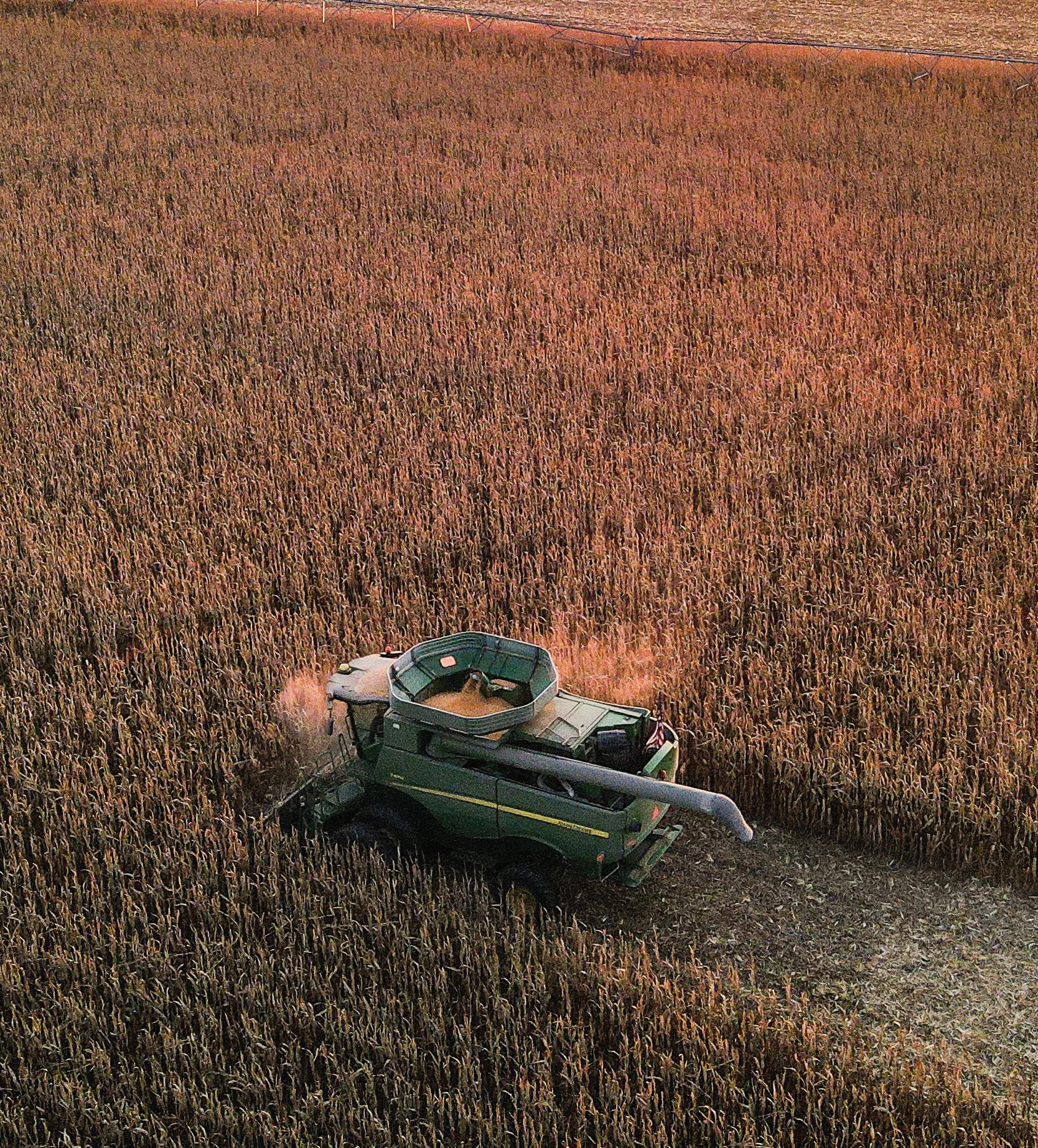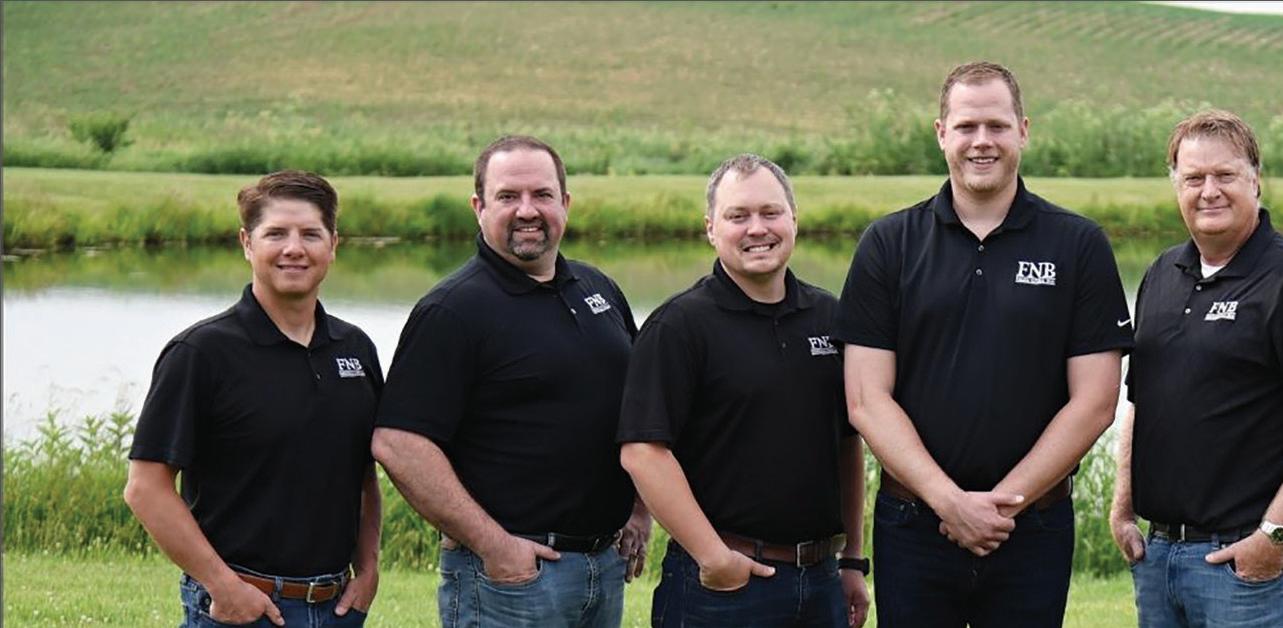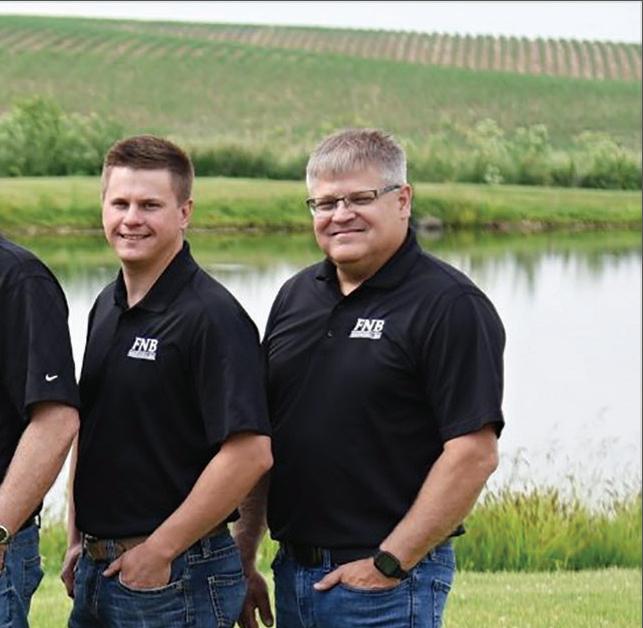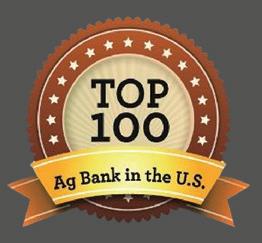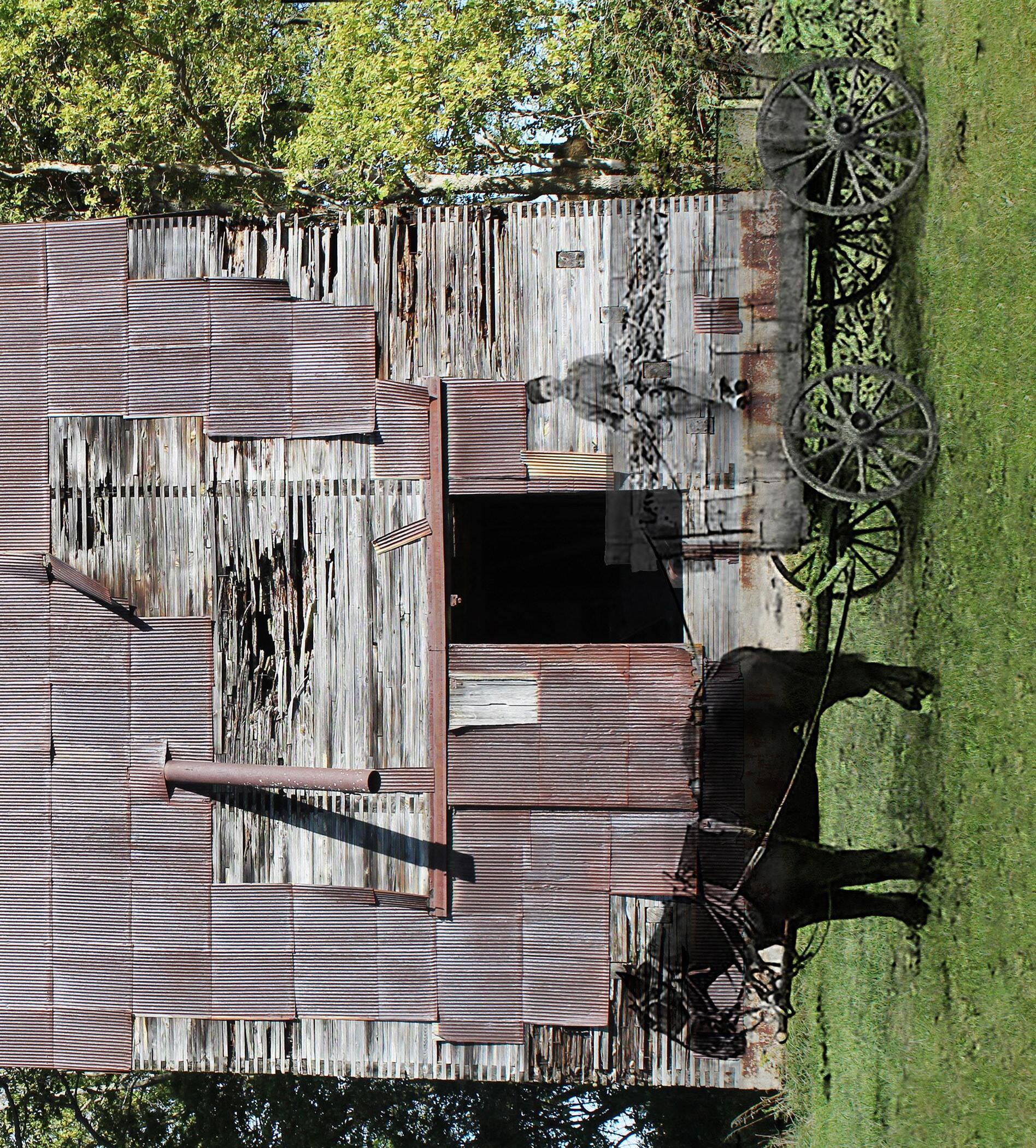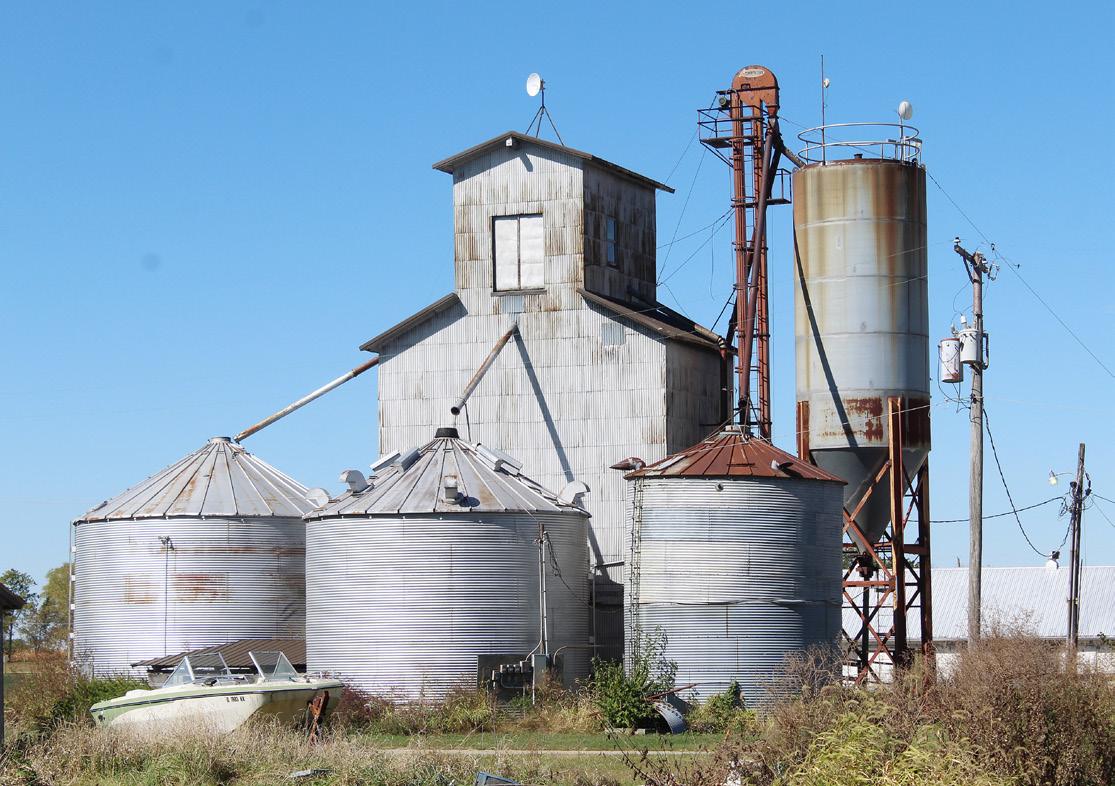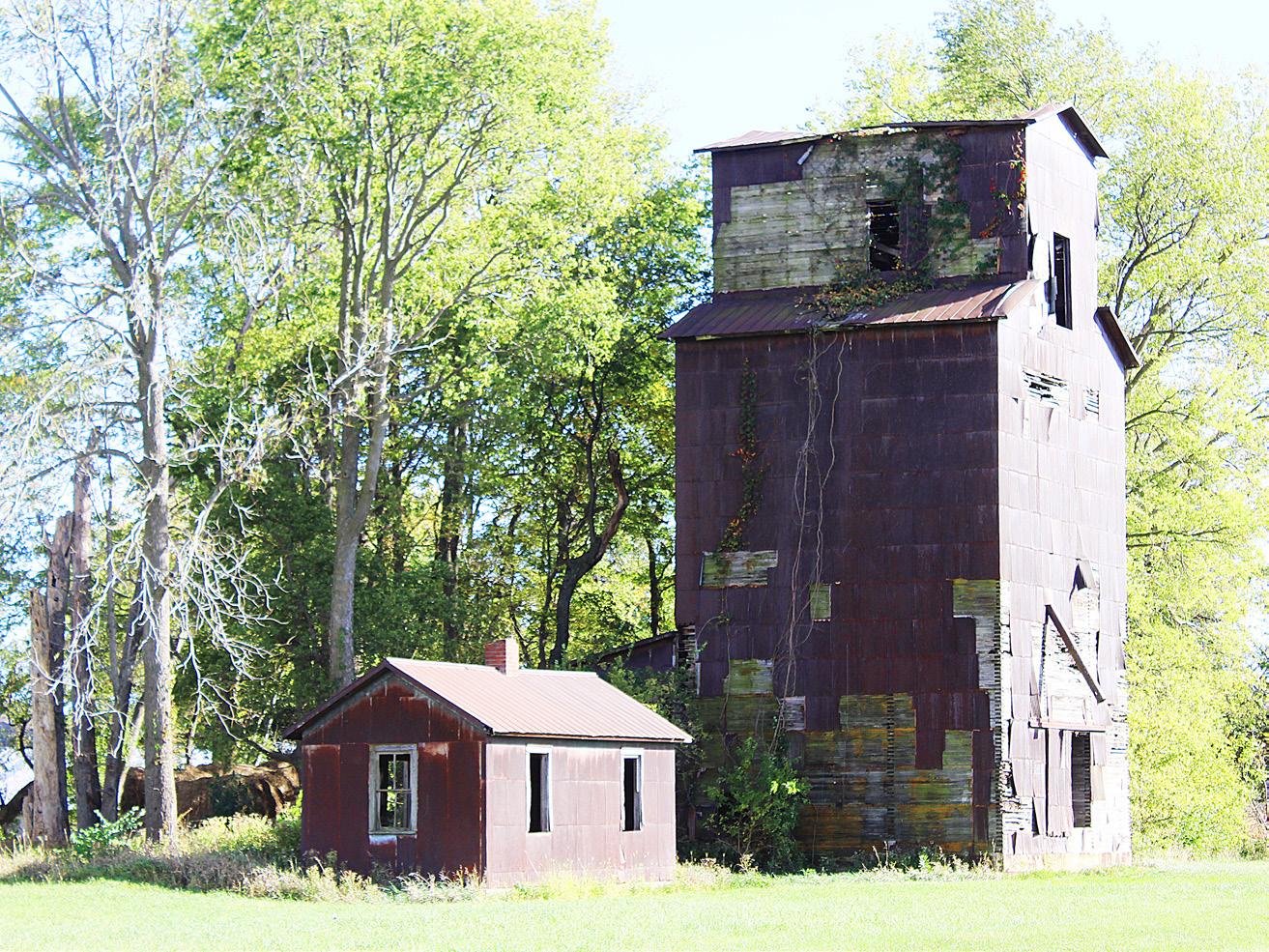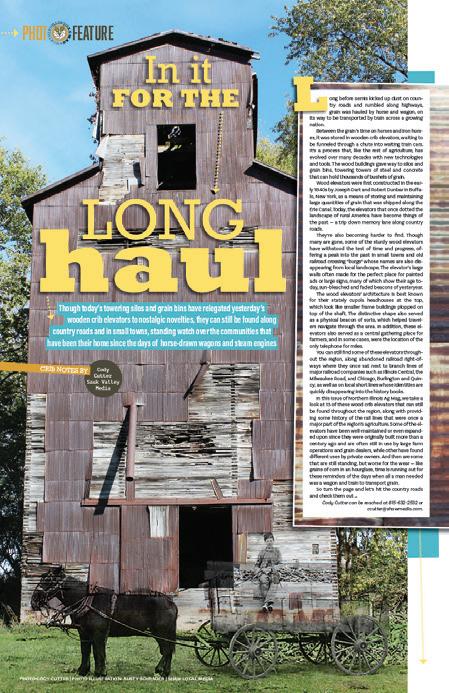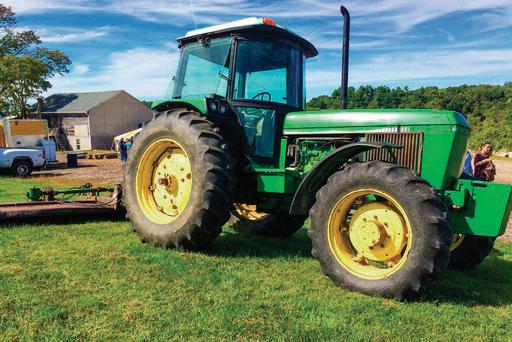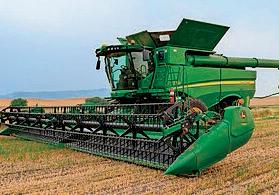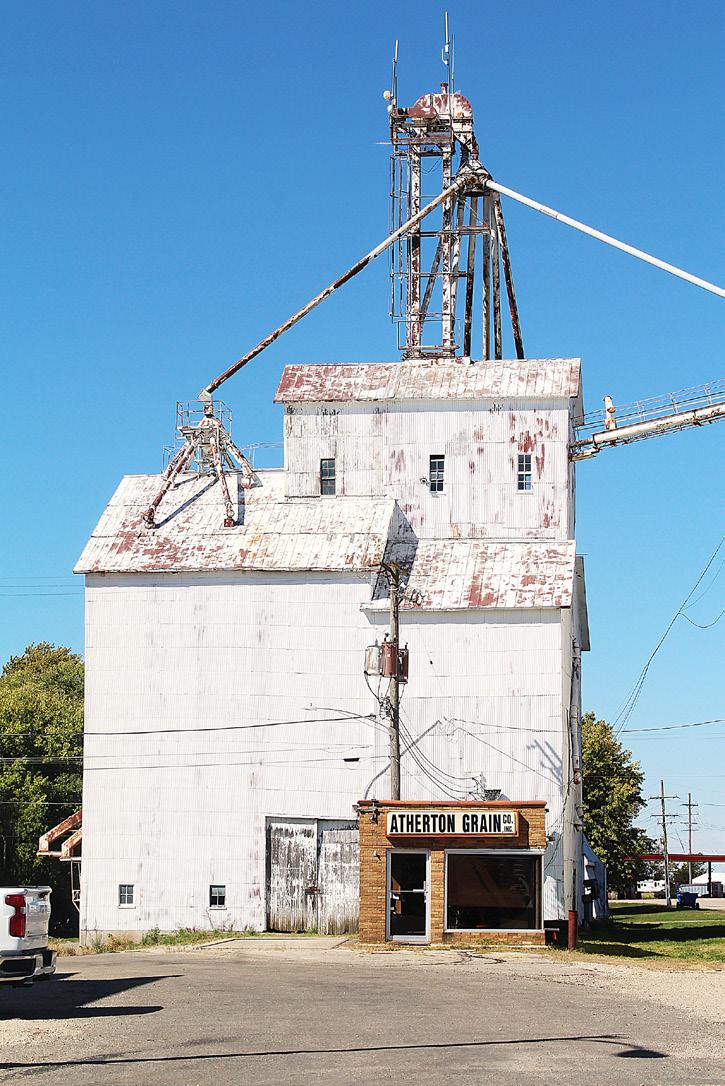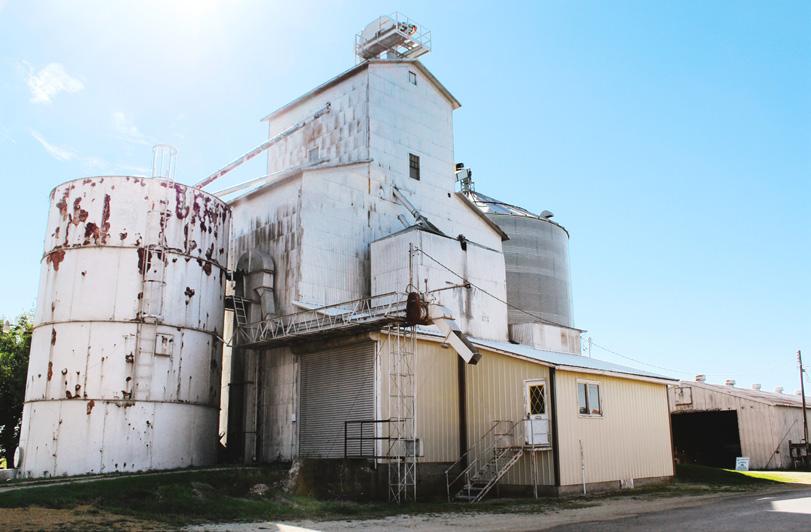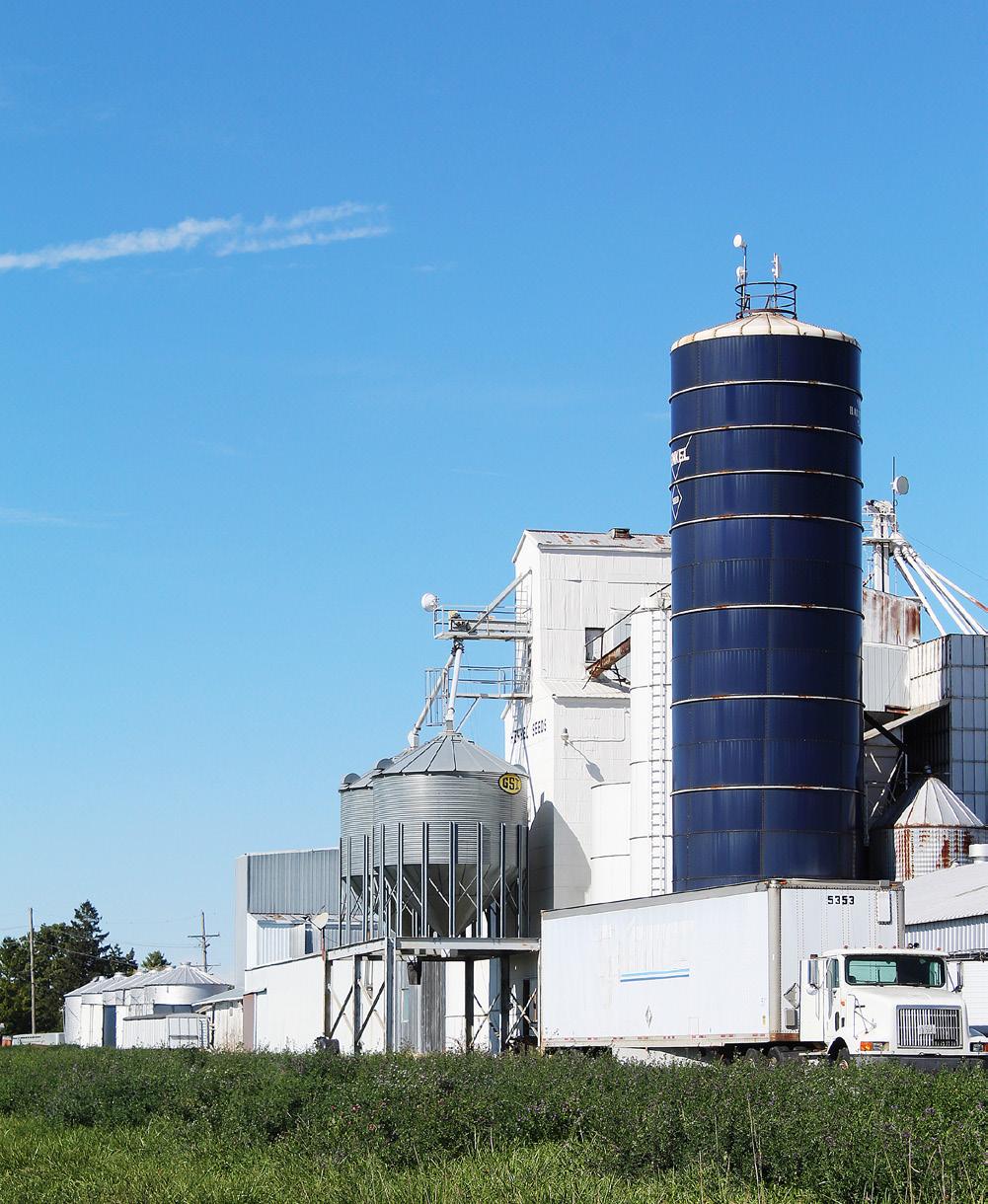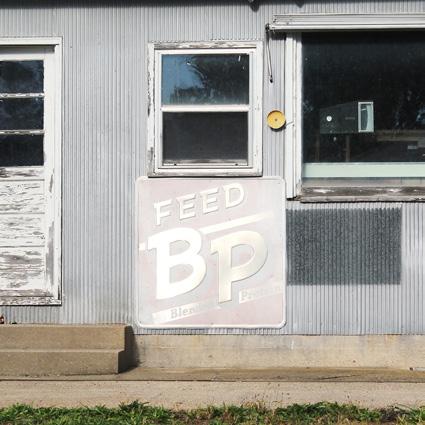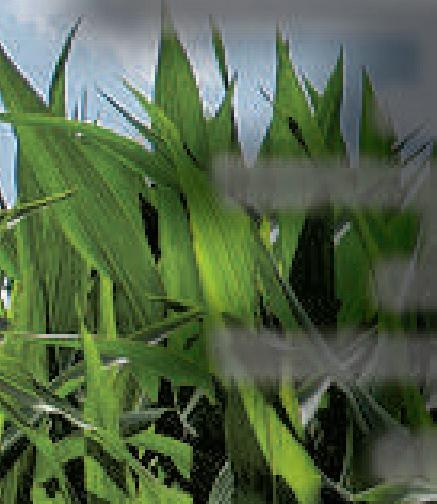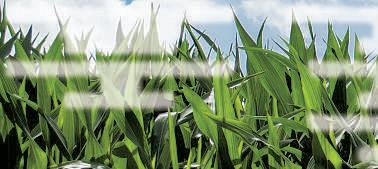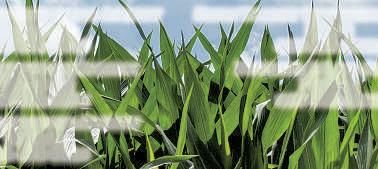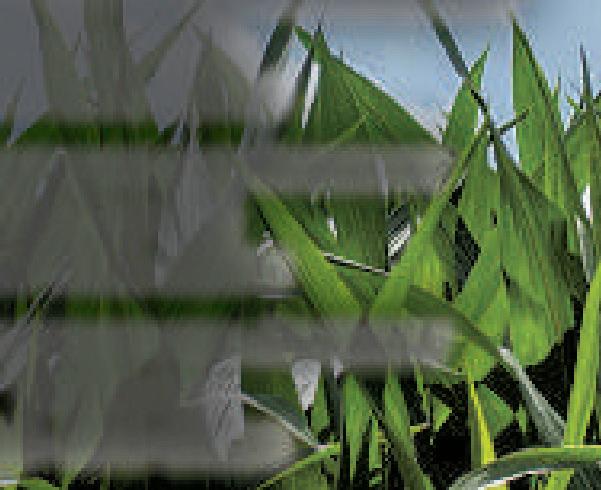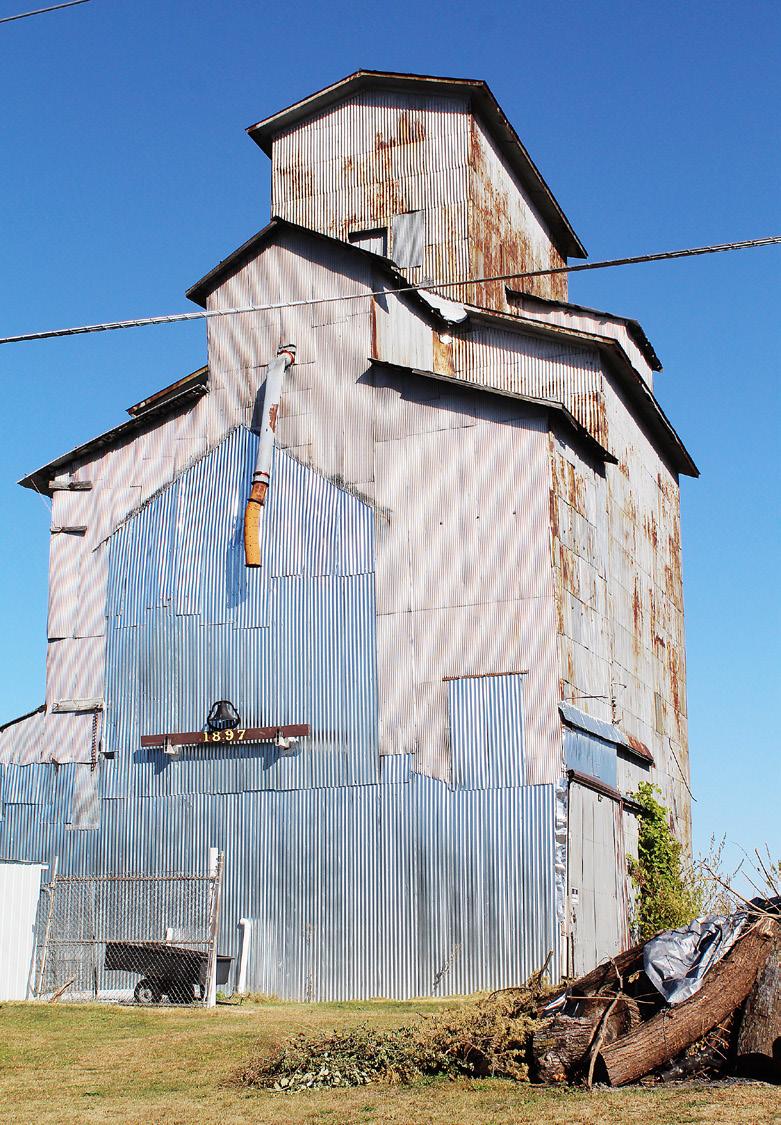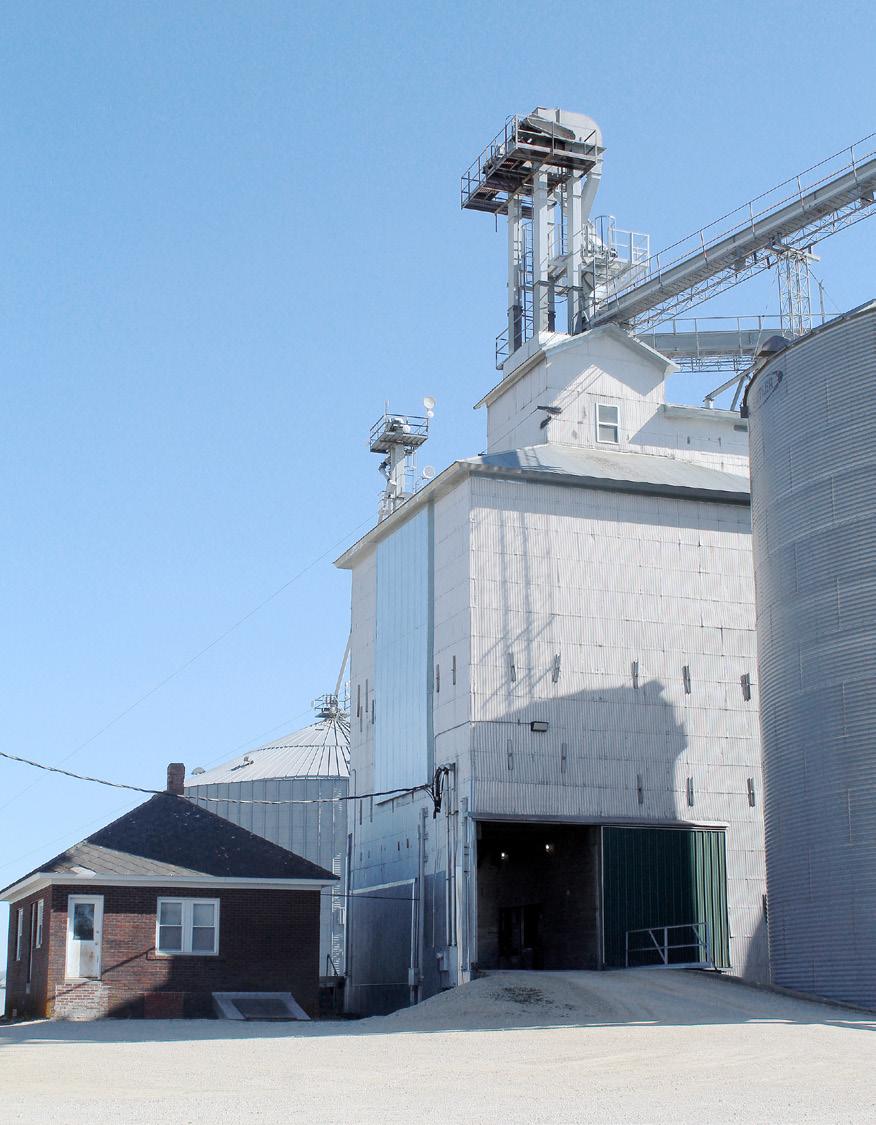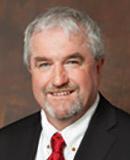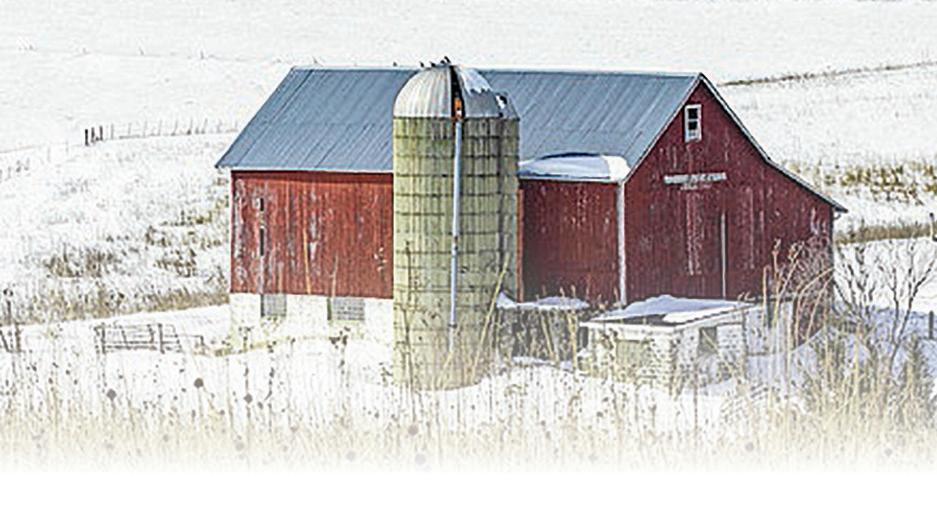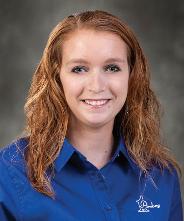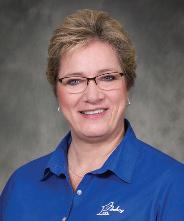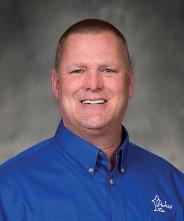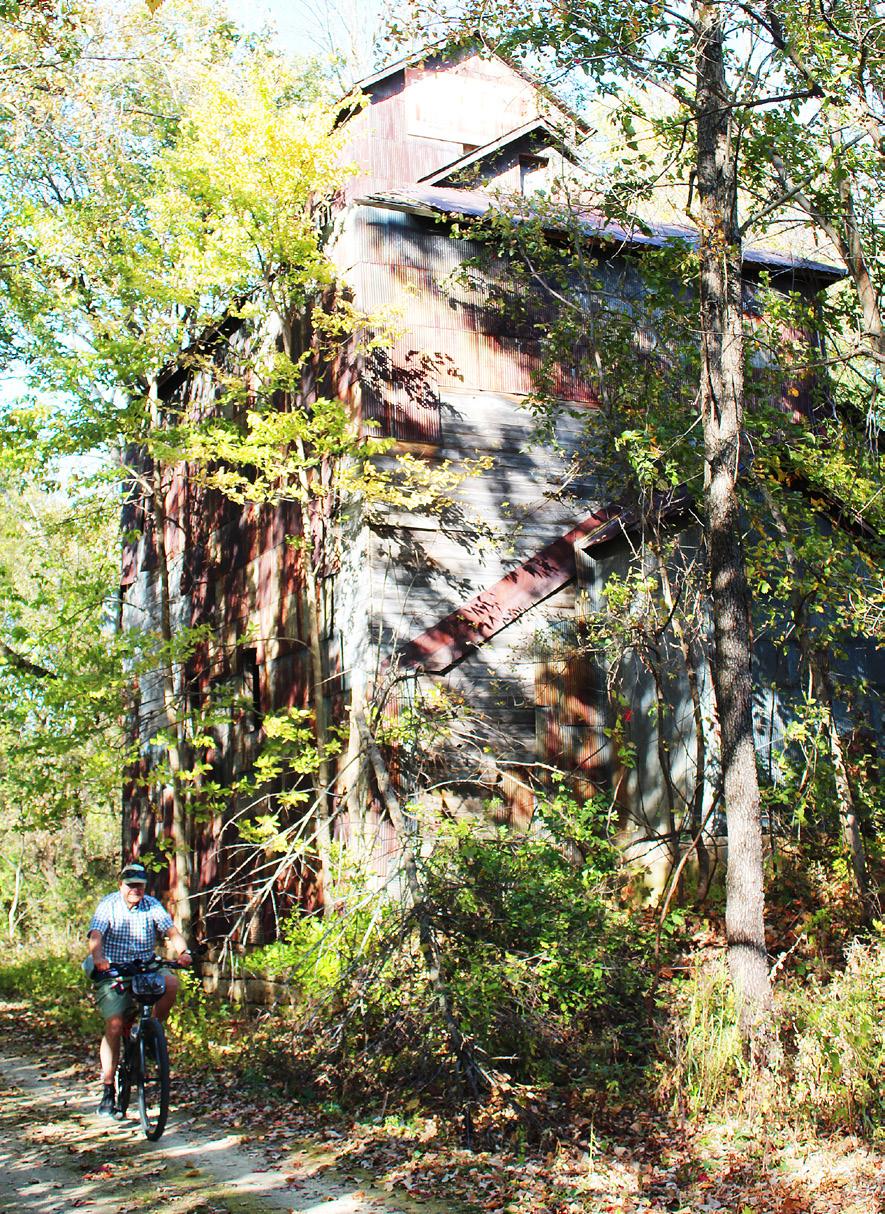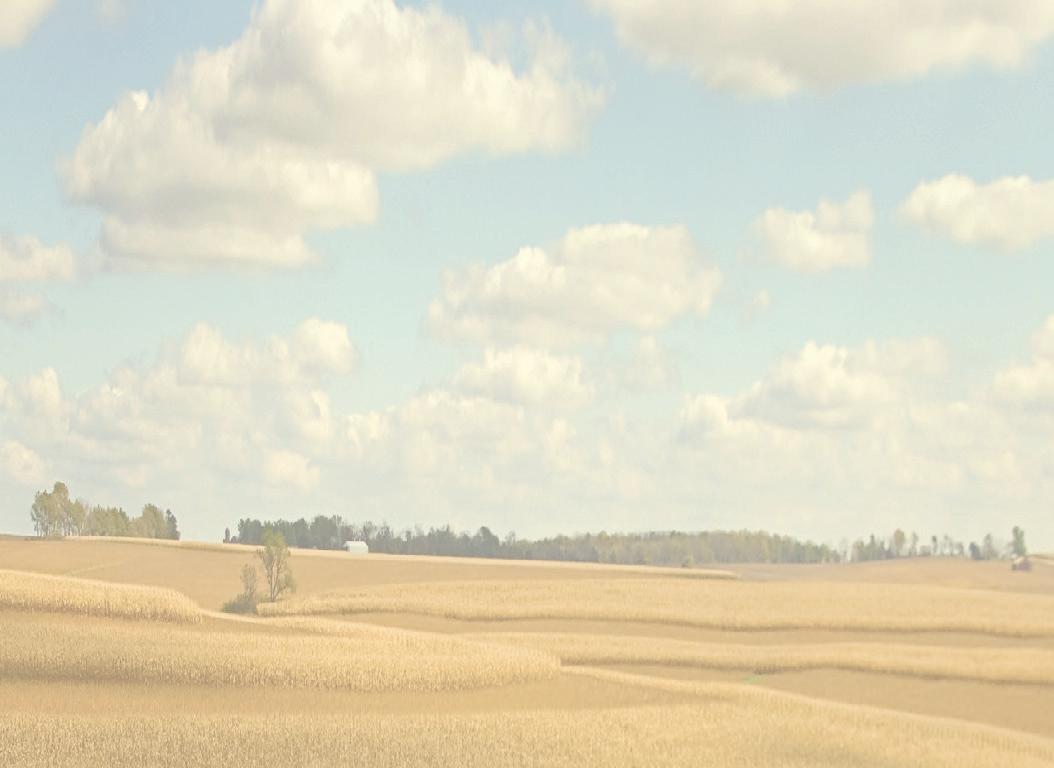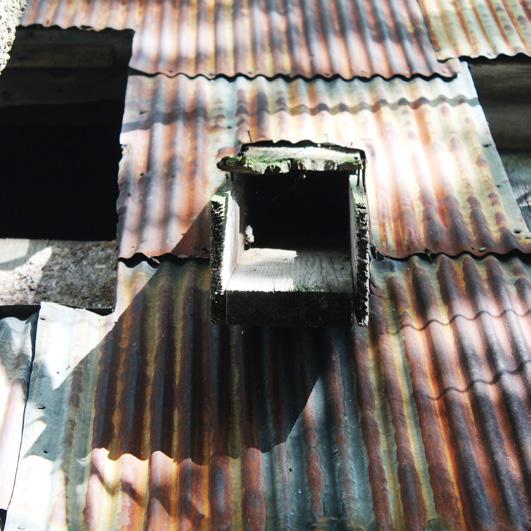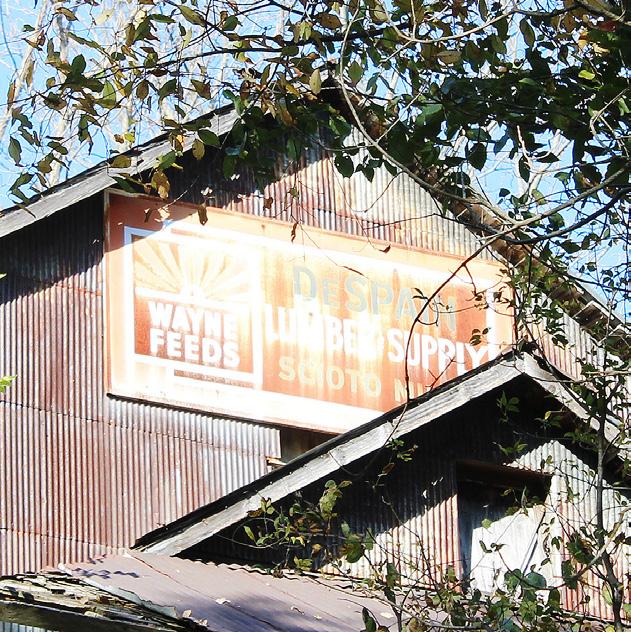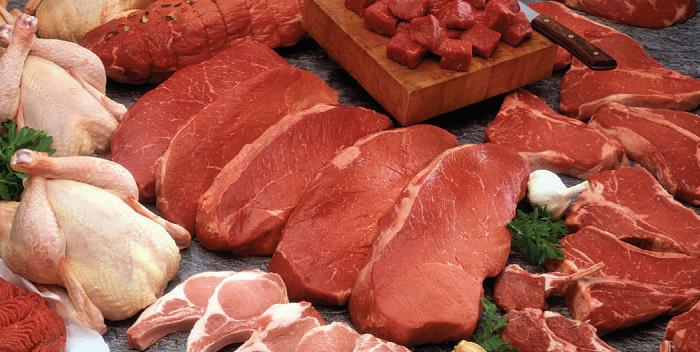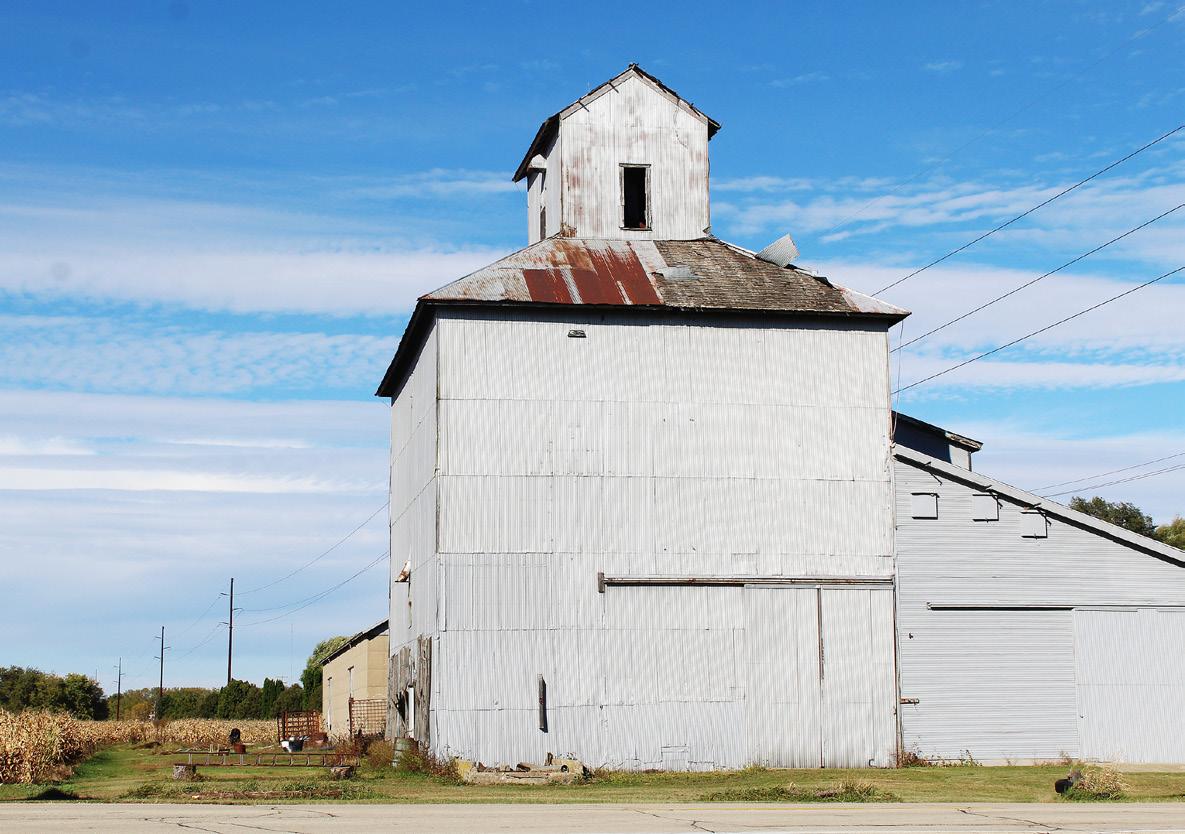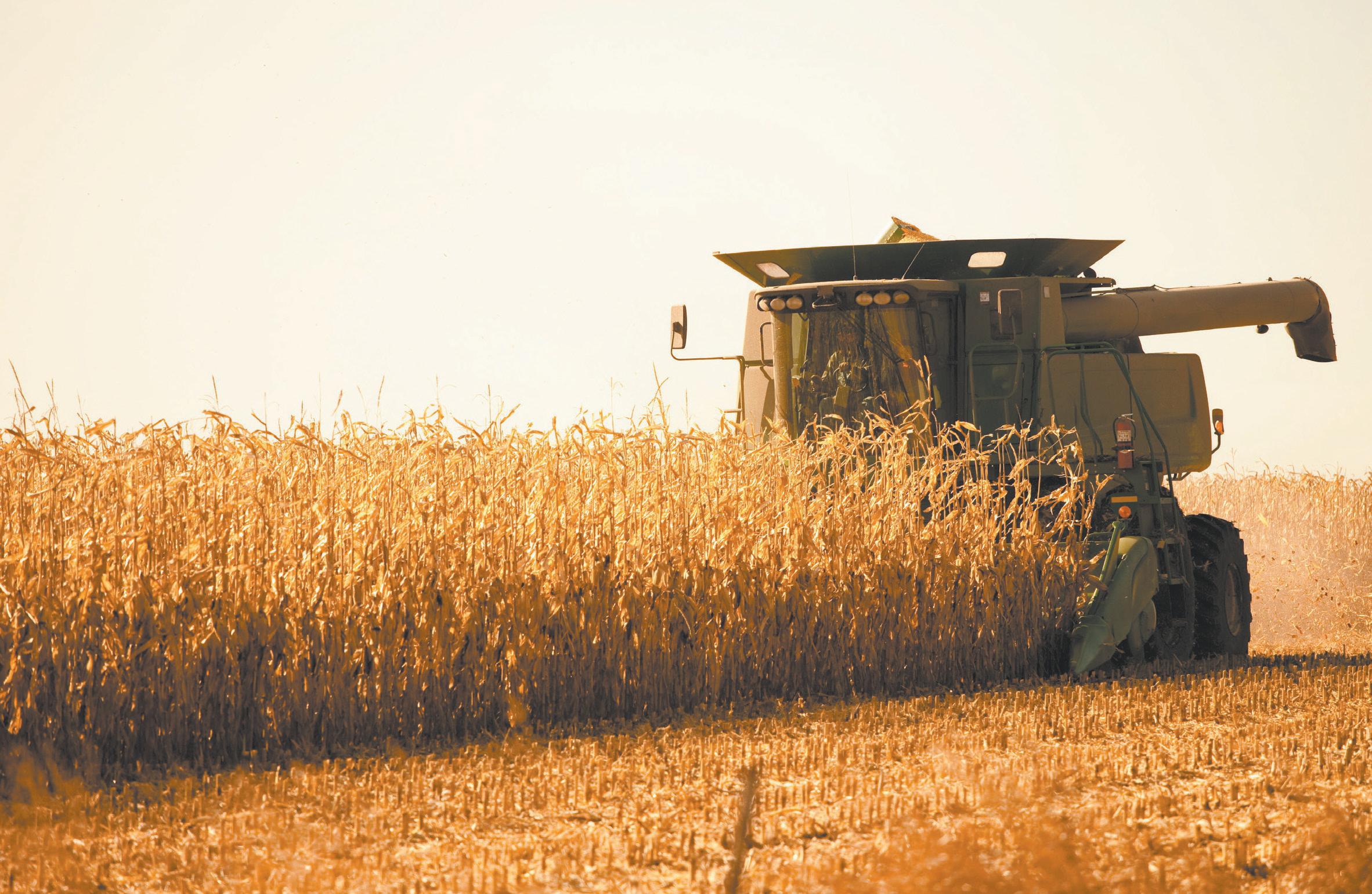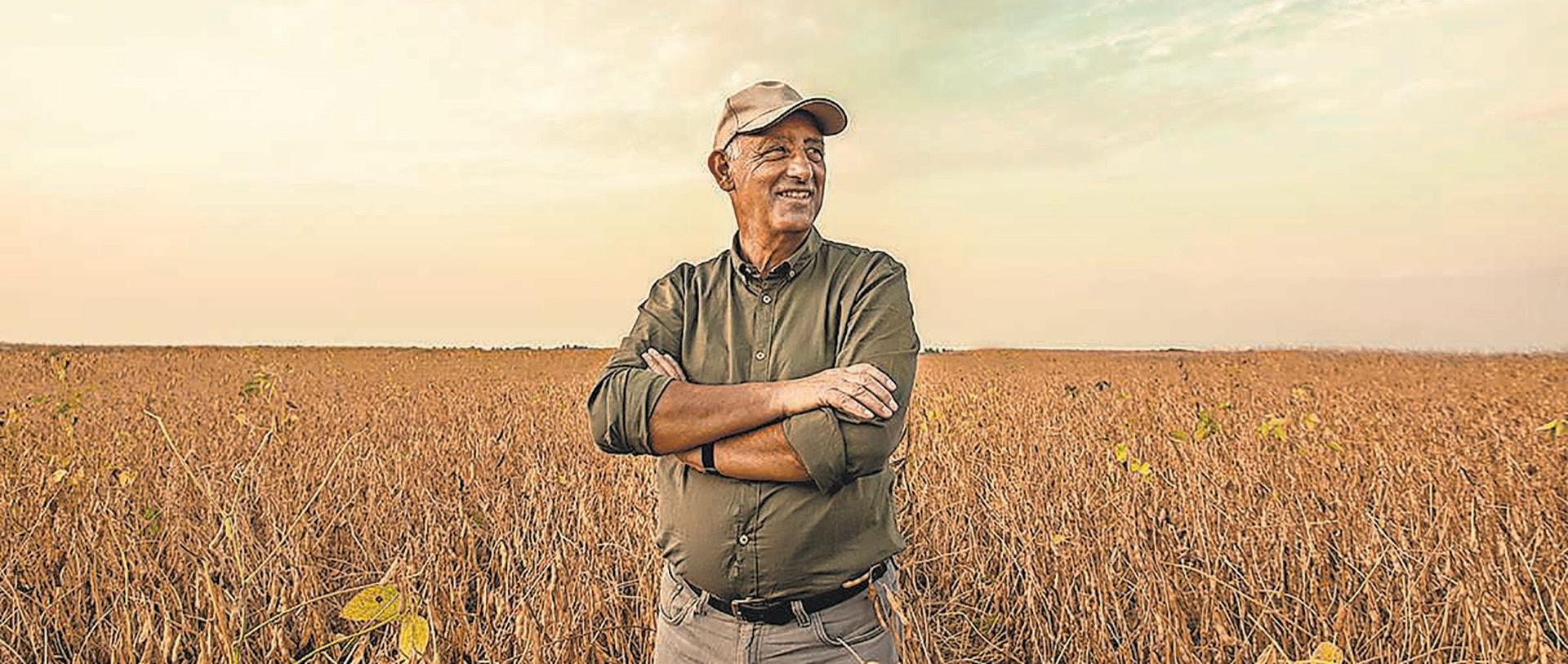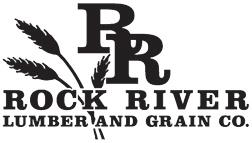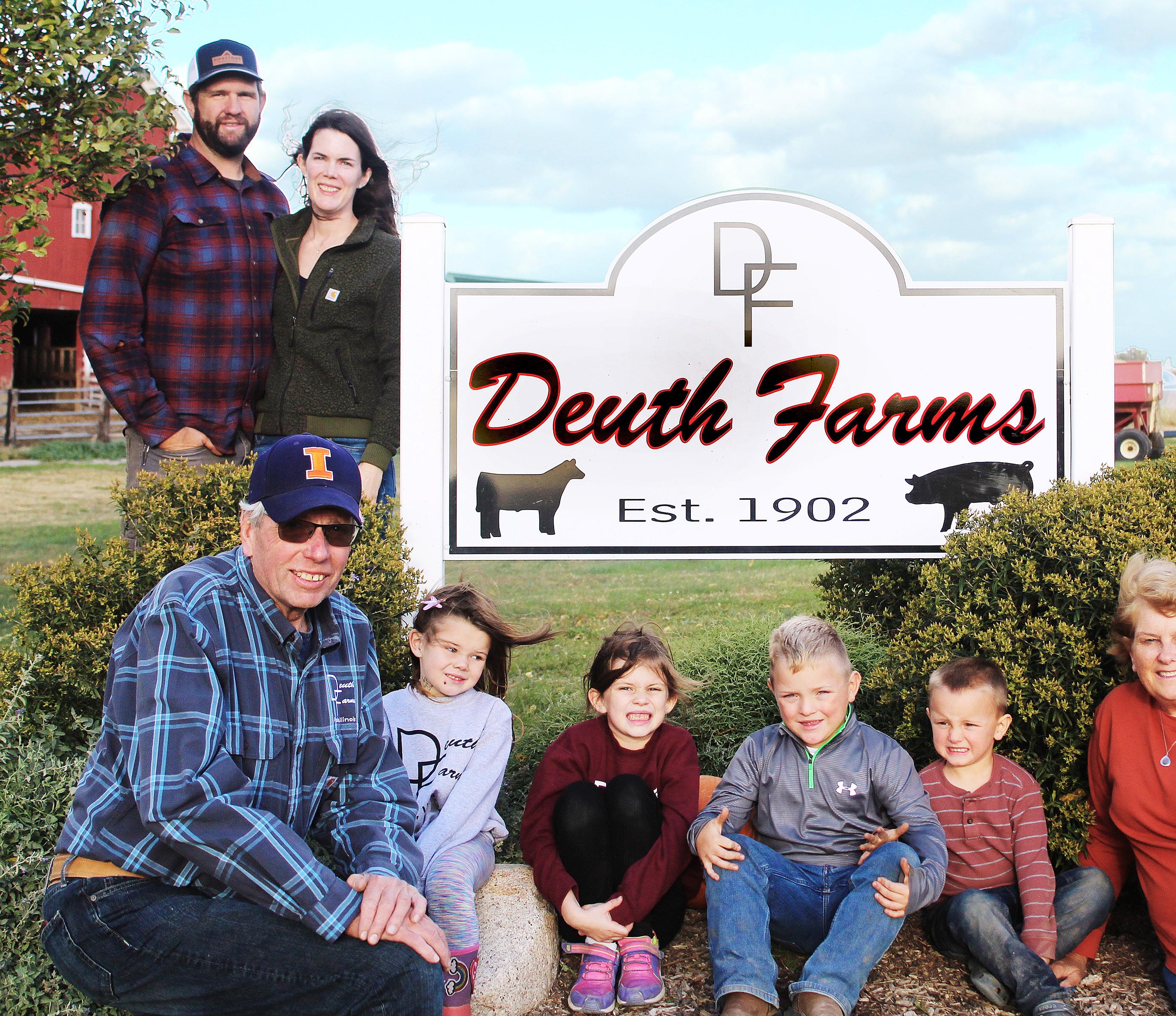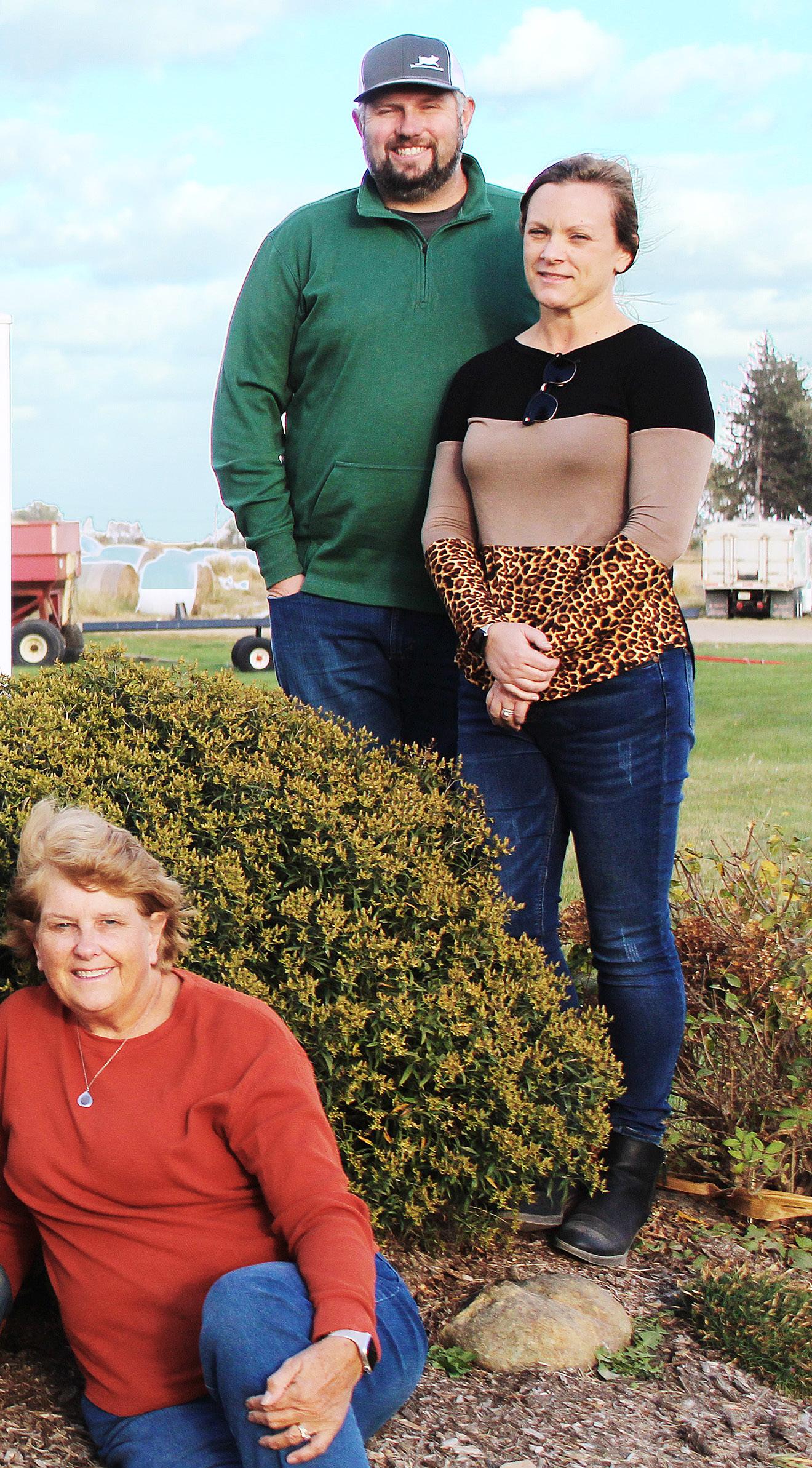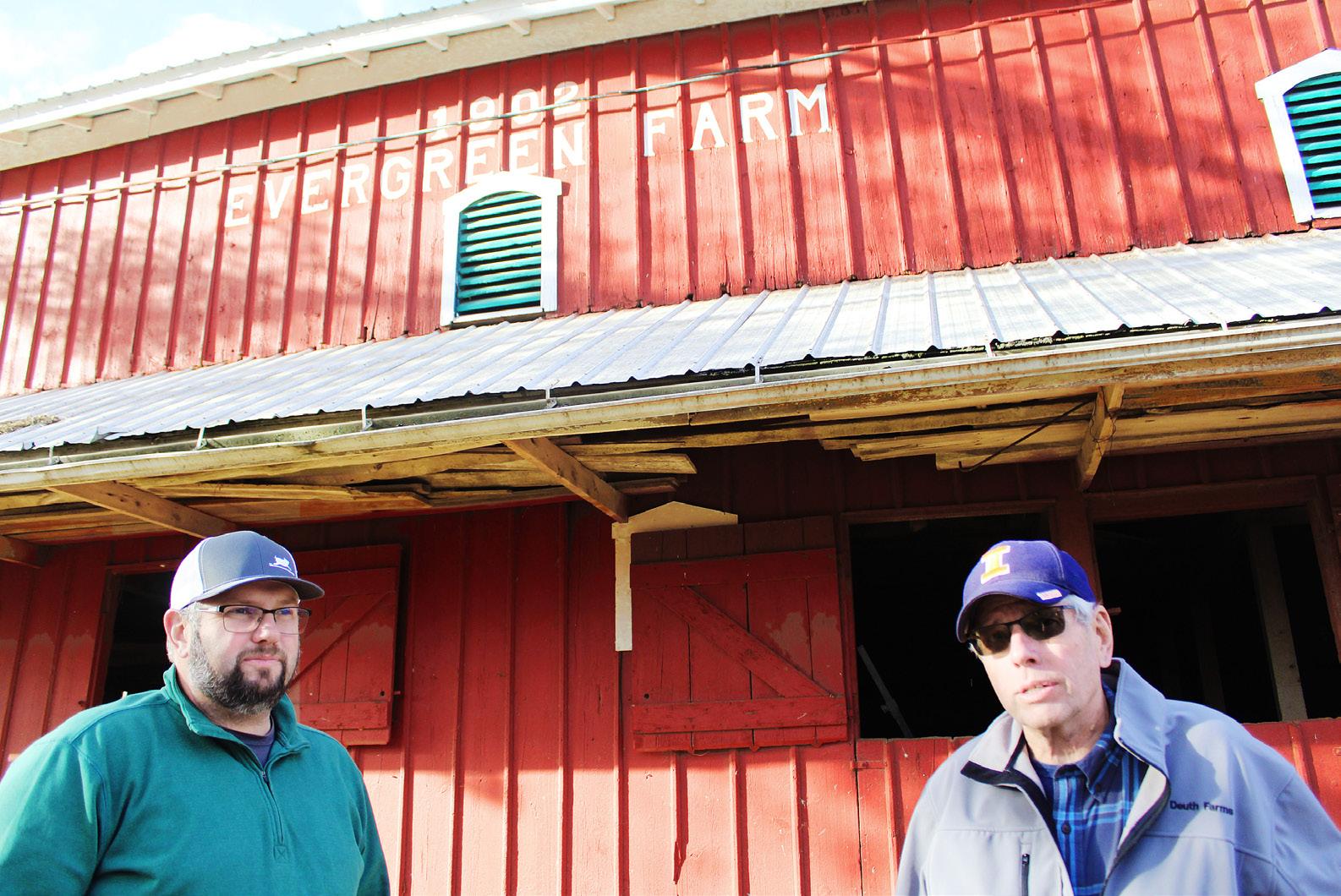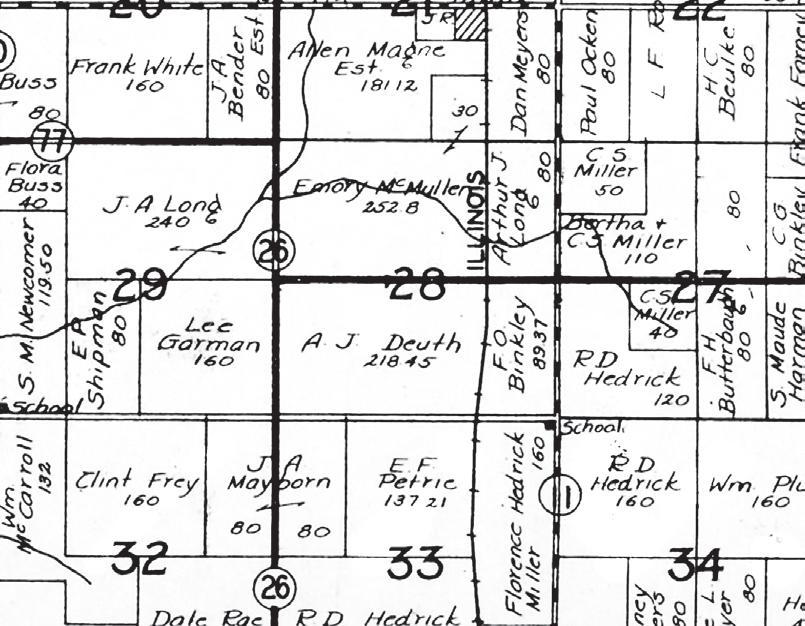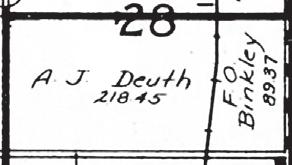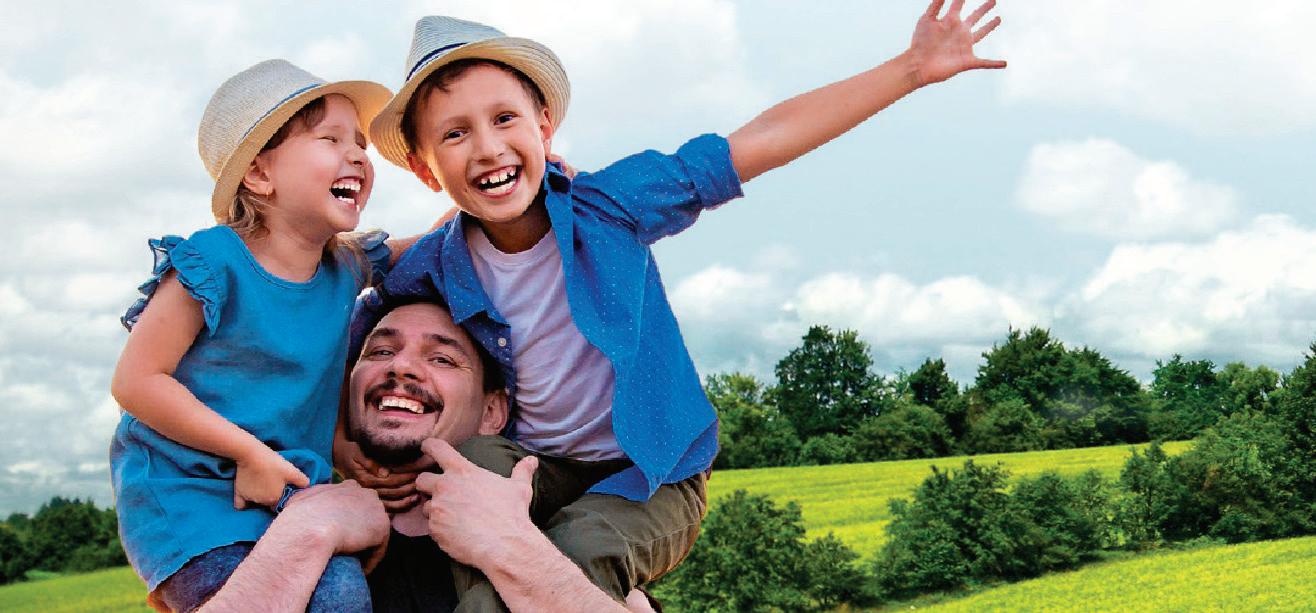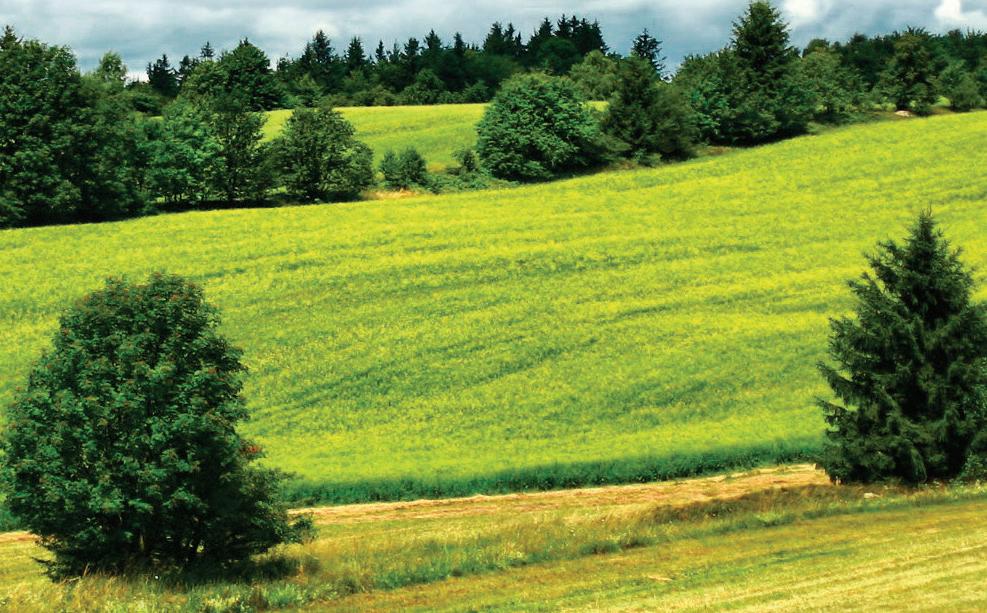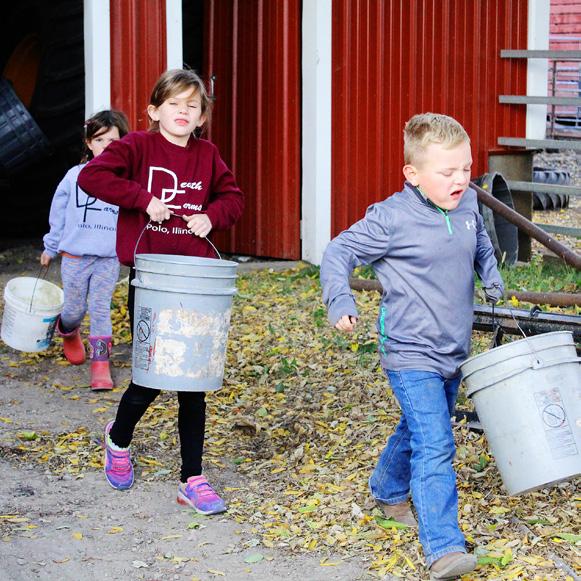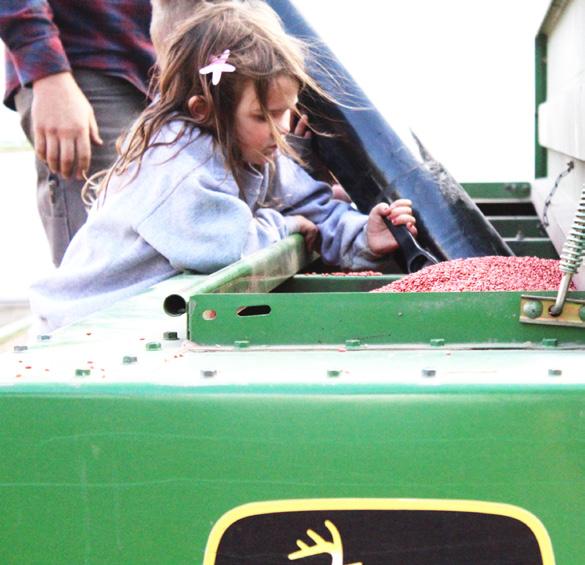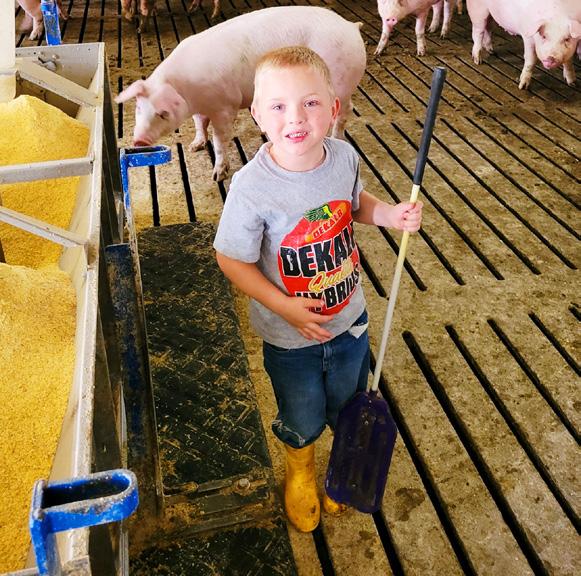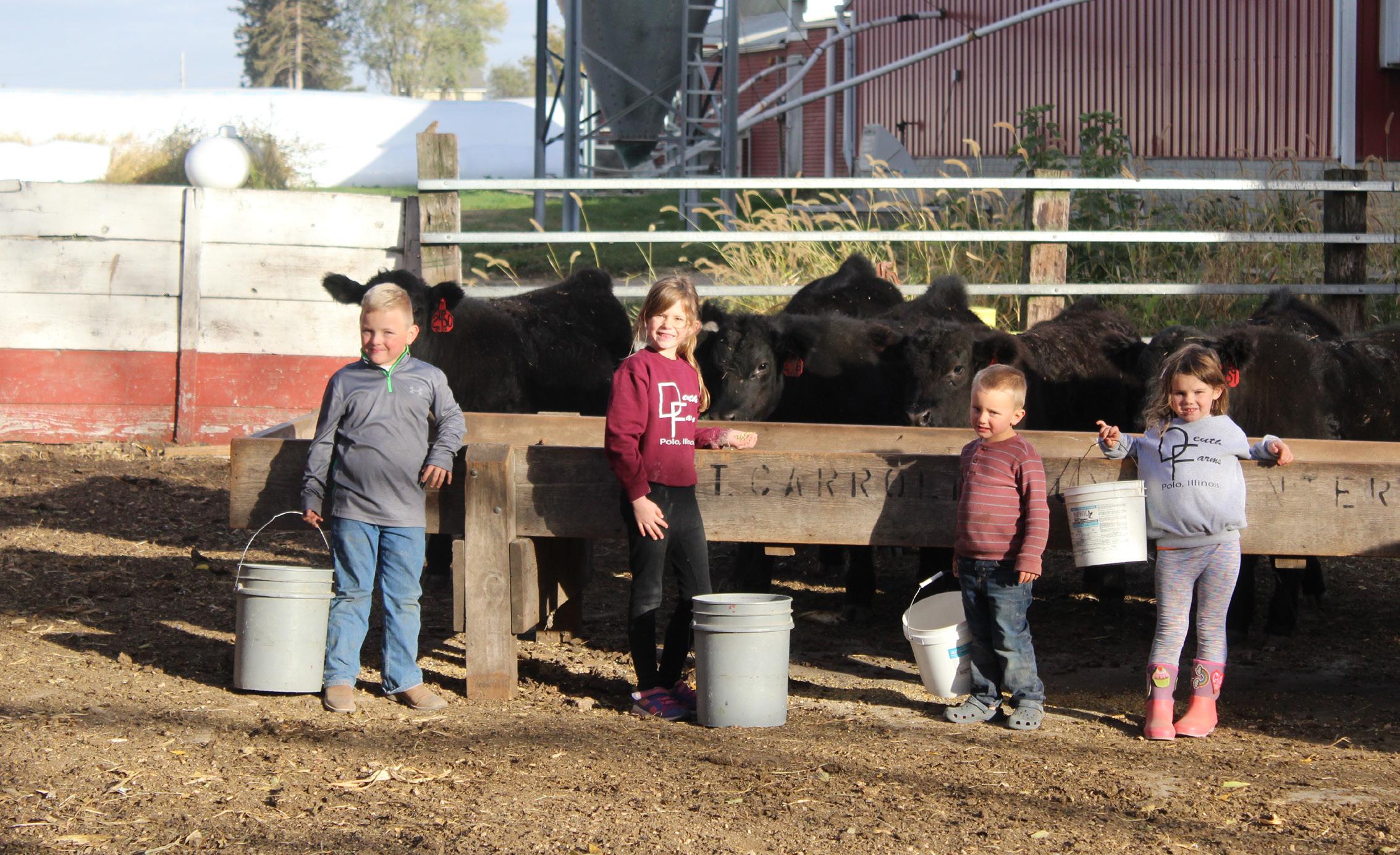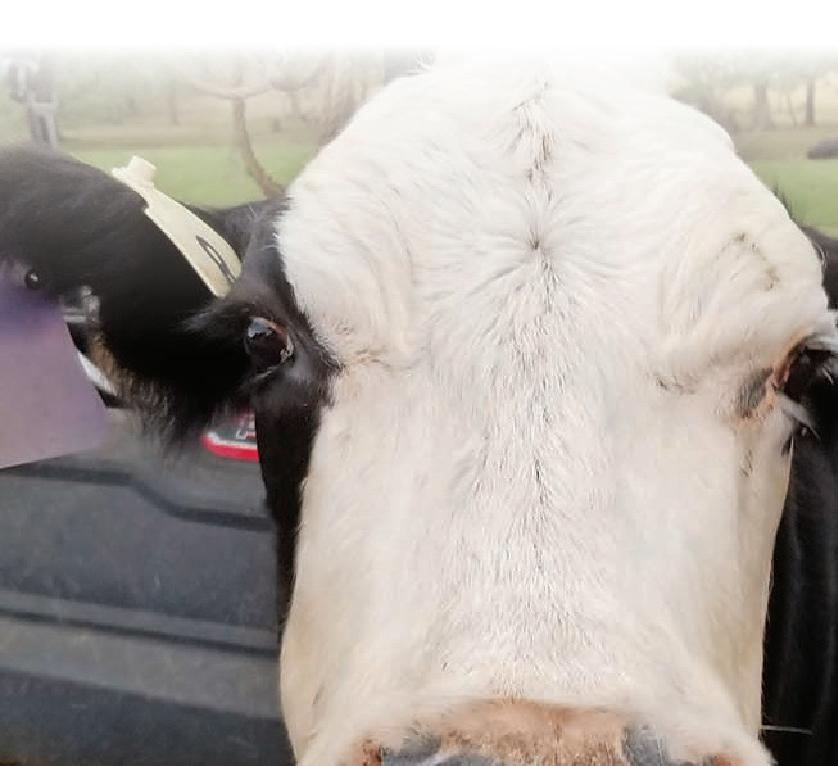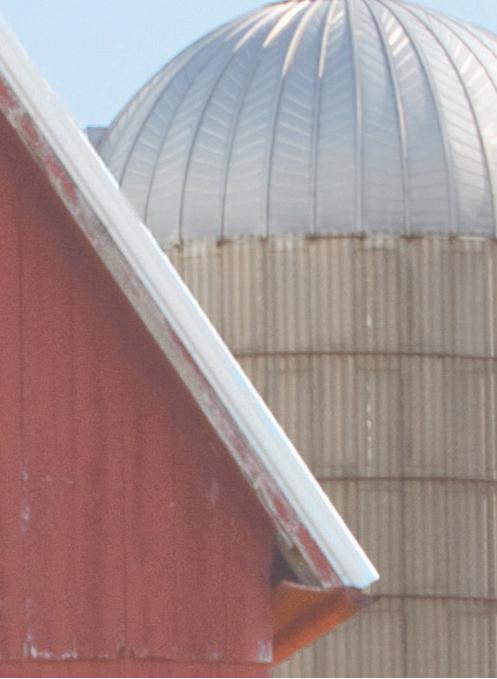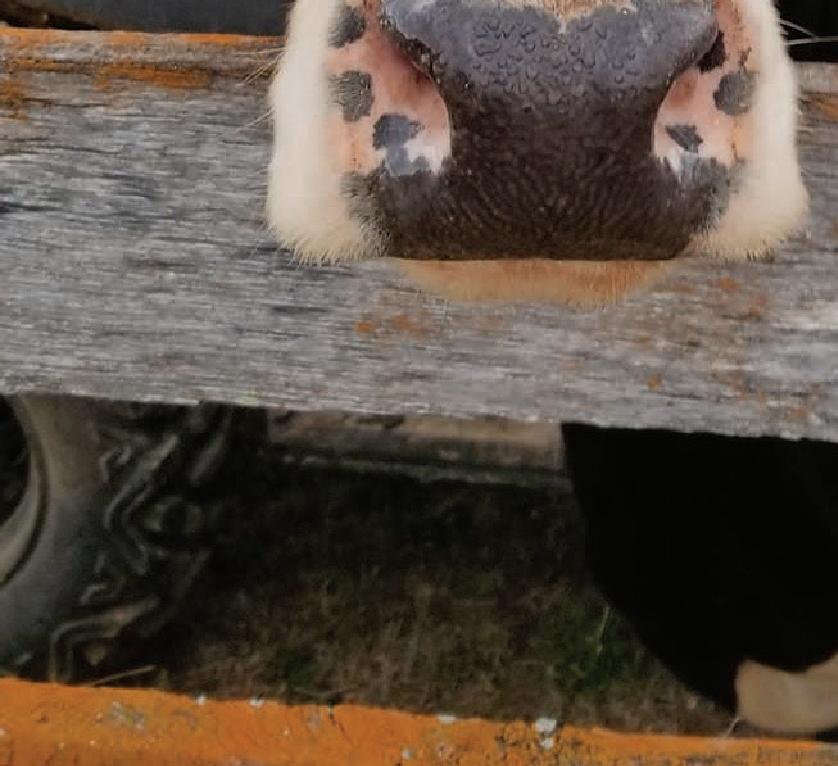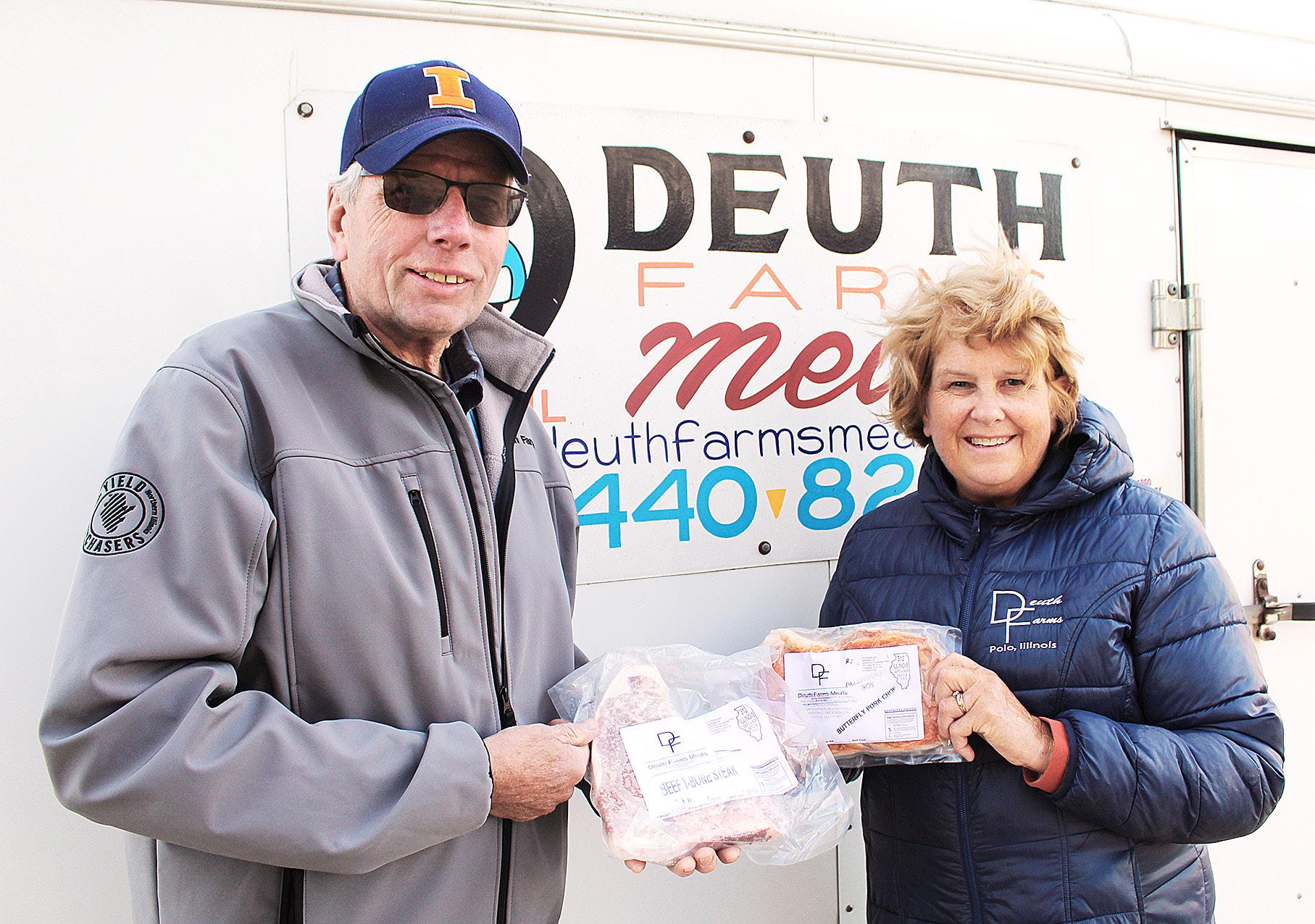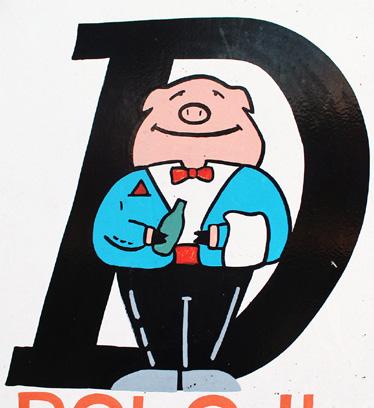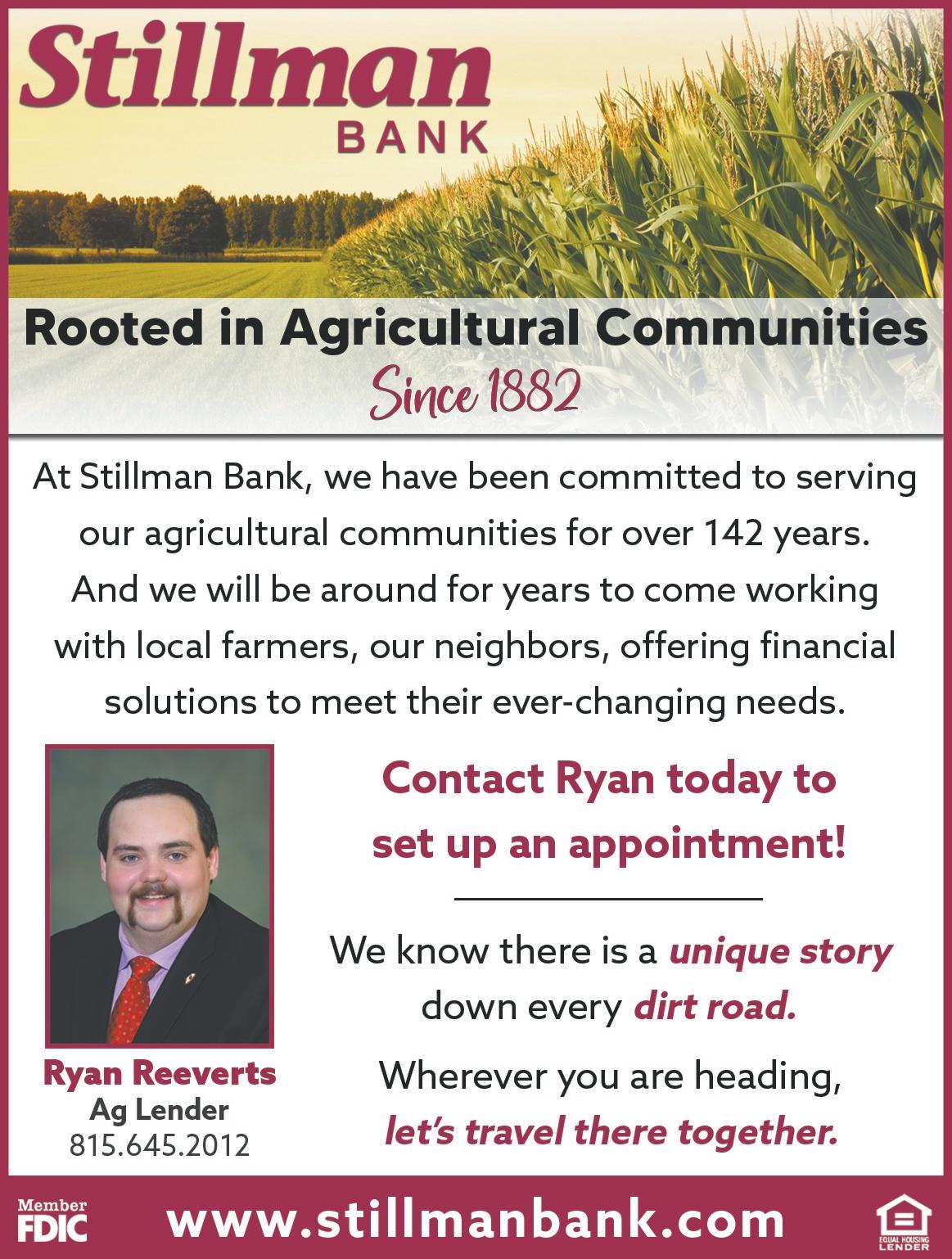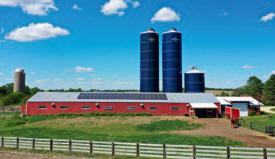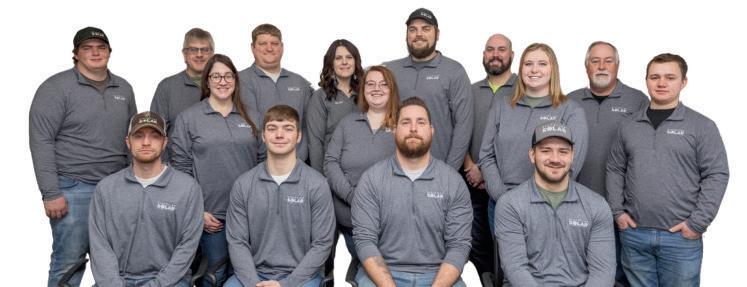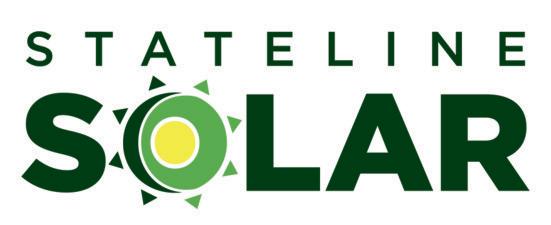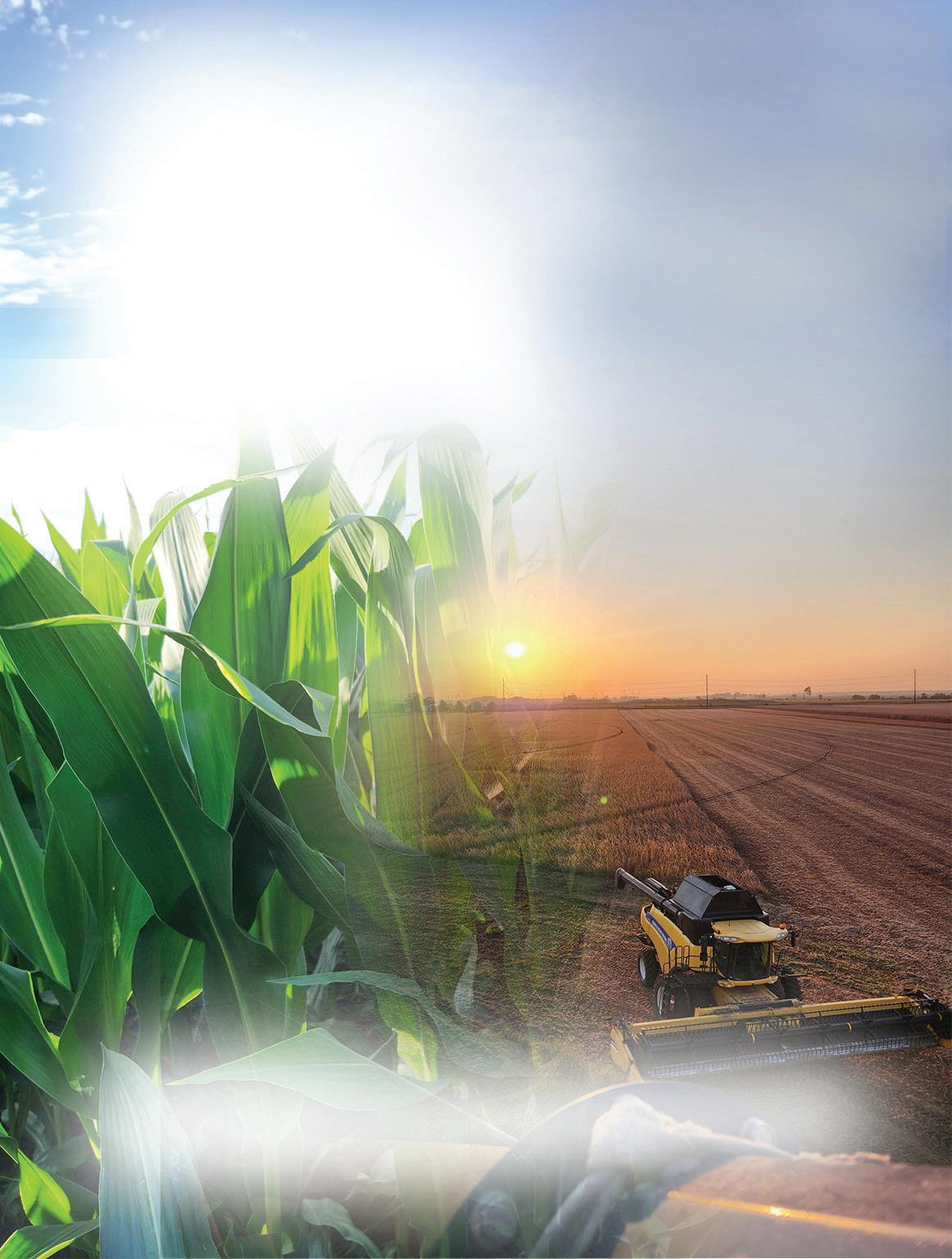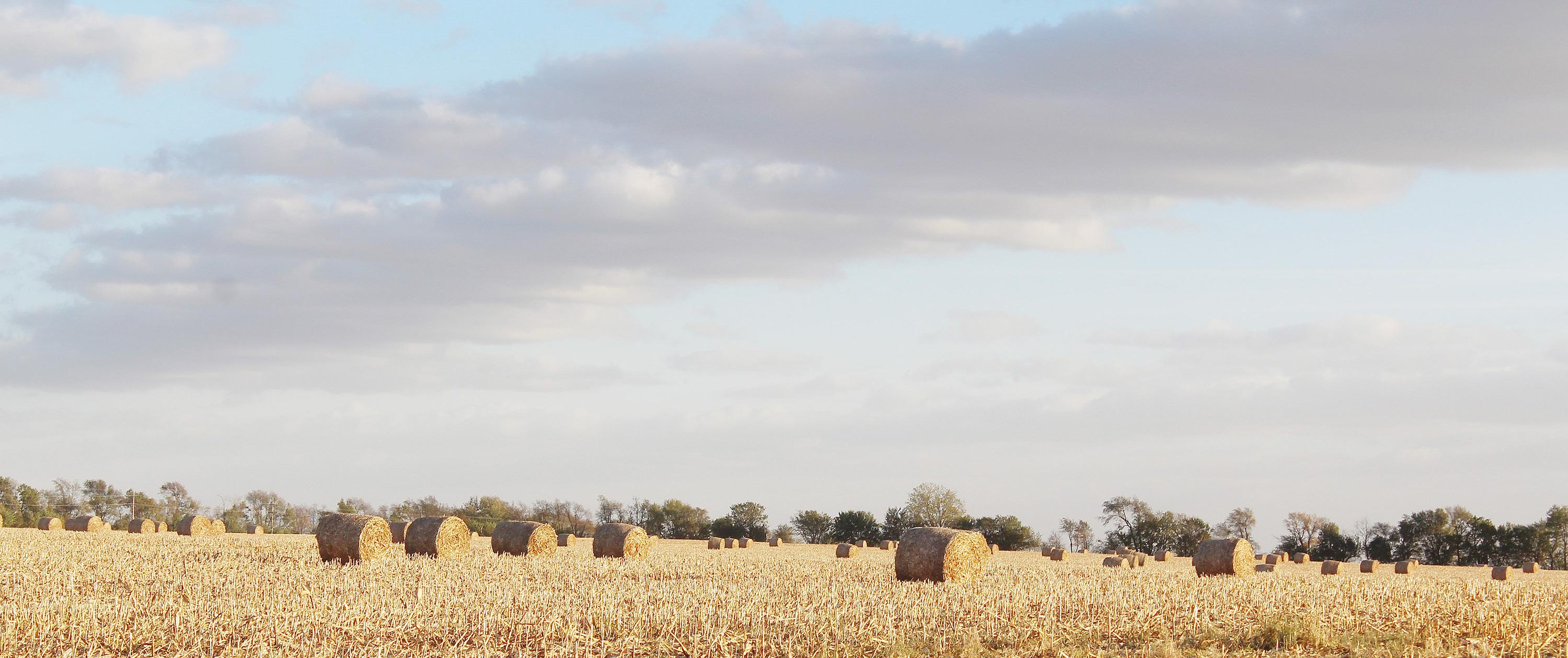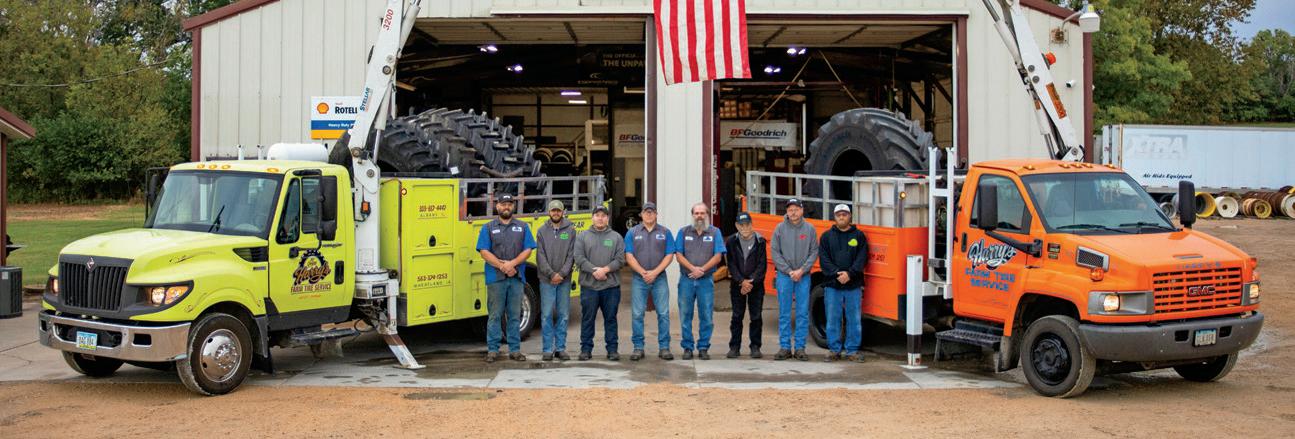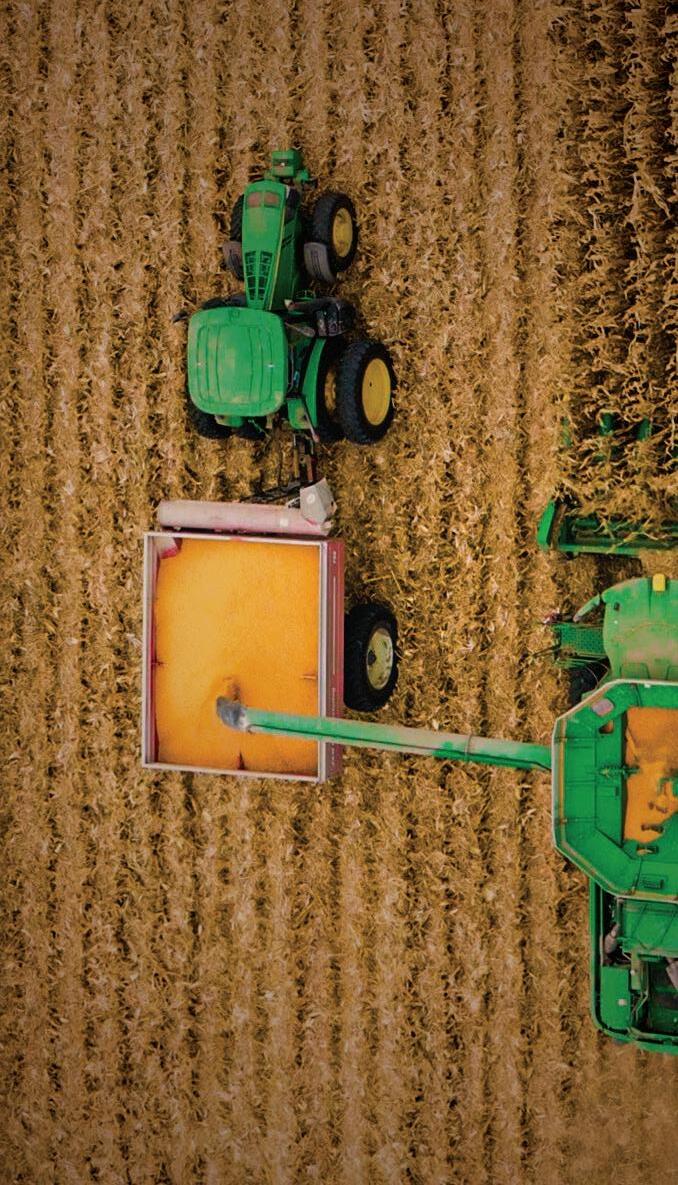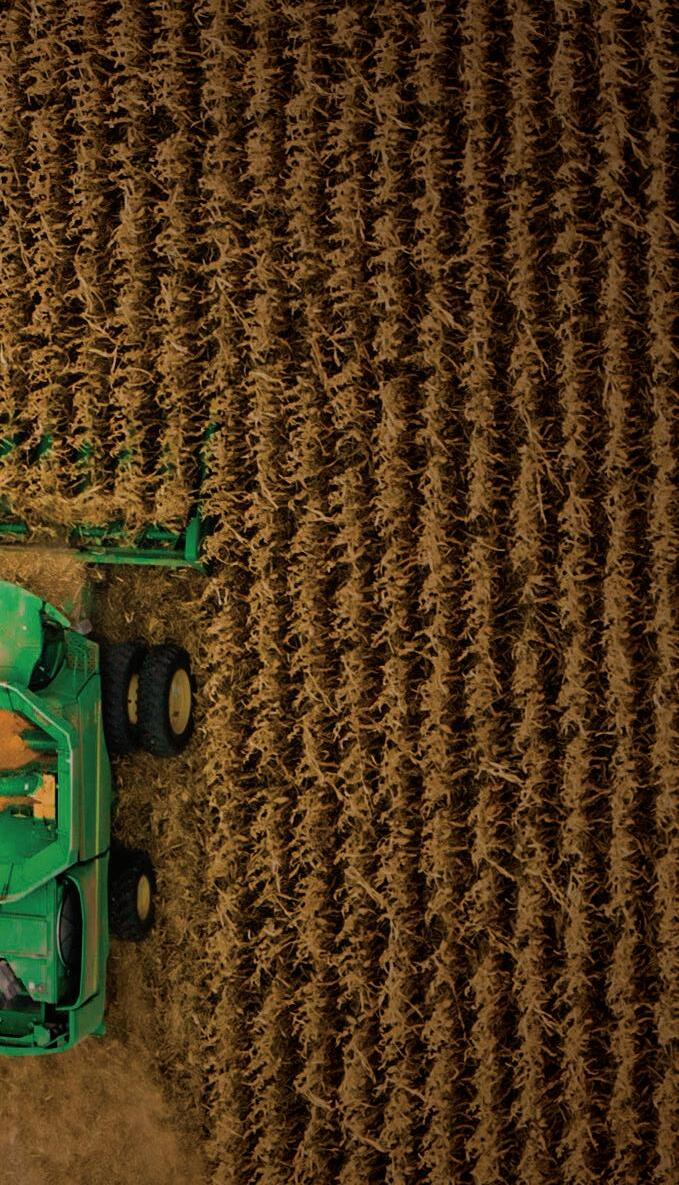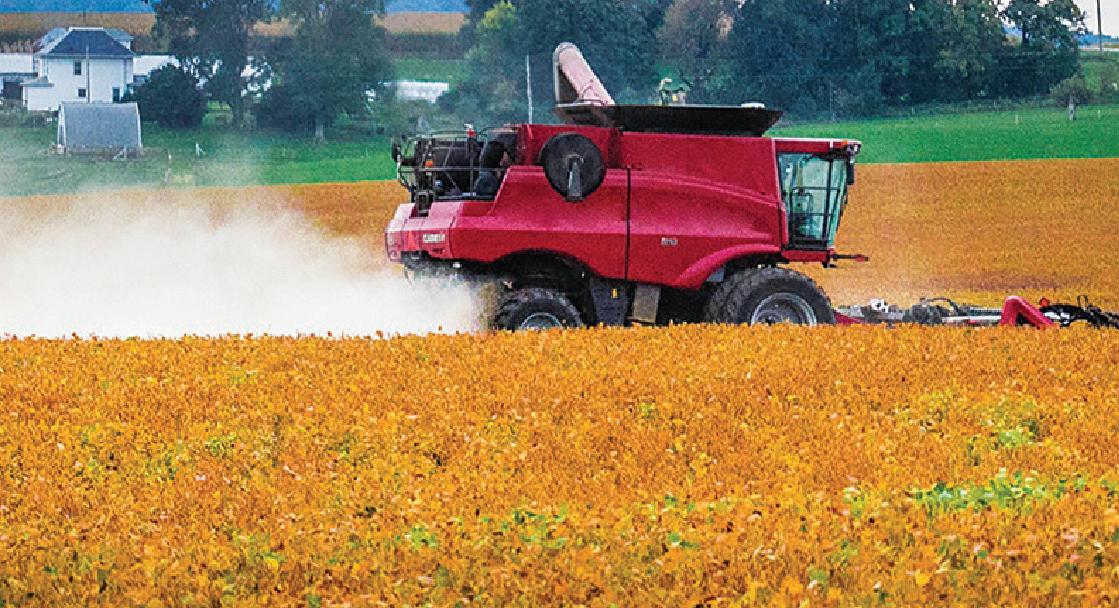Illinois soybean farmers can’t contain their enthusiasm over a growing market for their crops.
AG MAG PHOTO FEATURE: A look at local “has-bins” and history in the heartland.
Ogle County farm is a great place to work with family.
A herd bargain: Goats help family deflate inflation in the dairy case.



Publisher/Ad Director
Jennifer Heintzelman
Magazine editor & Page design
Rusty Schrader For Advertising
Contact Jill Reyna at 815-631-8774 or jreyna@saukvalley.com
Published by Sauk Valley Media
113 S. Peoria Ave., Dixon, IL 61021 815-284-2222
Have a story idea for Ag Mag? E-mail rschrader@saukvalley.com
Articles and advertisements are the property of Sauk Valley Media. No portion of Ag Mag may be reproduced without the written consent of the publisher. Ad content is not the responsibility of Sauk Valley Media. The information in this magazine is believed to be accurate; however, Sauk Valley Media cannot and does not guarantee its accuracy. Sauk Valley Media cannot and will not be held liable for the quality or performance of goods and services provided by advertisers listed in any portion of this magazine.
Grounded in faith
4 A herd bargain
Goats help Lee County family deflate inflation in the dairy case.
14 Farmers’ ship has come in
Shipping containers are helping drive demand around the world for Illinois soybeans — “The infrastructure ... here is so perfect.”
18
Ag Mag photo feature
In it for the long haul: Hop in your car and take a tour of has-bins and history in the heartland.
28 “It’s a great place”
When the Deuths of Ogle County add another name to their family tree, they hang it on the branches of an evergreen that’s been growing for more than 120 years.









Daisy is one of about a dozen goats on the Rod farm in Lee County, where the family has been raising them for the past few years. “A couple turned into a small herd, and it’s been going well,” said Shelly Rod.




hen Shelly Rod noticed the price of dairy products at the store kept going up, she didn’t just let it get her goat. She got some goats instead.
Today, she and her family are raising a herd of diminutive dairy goats on their farm in rural West Brooklyn, and they’ve proven to be quite the productive members of the farm, not only helping the family keep the fridge full of milk, cheese and ice cream and being their the go-to gang for making soap and lotion, but serving as a source of income from the sale of the goat products and the goats themselves.
The Rods’ herd has grown to a little more than a dozen mini Nubian dairy goats during the past couple years, and considering where the inspiration for Shelly’s idea to bring goats onto the farm came from, they’ve become something of a godsend. Shelly enjoyed taking care of goats while at a Christian camp 15 years ago, and it was a fond memory that stayed with her, one that got her thinking a few years ago about introducing goats to the rest of the family: husband Kevin and their three young children, Madison, Kaylee and Jeremy.
GOATS cont’d to page 6

At first, Kevin wasn’t too keen on the idea.
“I told my husband, and he said we didn’t need goats,” Shelly said. “So I let it go, but then a couple of years ago with the price of groceries and in this crazy economy, I thought it would be really nice to have our own milk source.”
The Rod Family raises mini Nubian dairy goats on their West Brooklyn farm. Shelly, her husband Kevin (not pictured), and children (from left) Kaylee, Madison and Jeremy, care for more than a dozen goats on the farm, along with three horses, two donkeys and a mule.
But as prices kept going up, so did their interest in goats.
“He brought up the goats and said that if I could make a go of it, make a business of it and make money, he’ll let me have a couple of goats,” Shelly said. “A couple turned into a small herd, and it’s been going well.” The goats join a farm family of three horses, two donkeys and a mule.
While Shelly had some experience with goats, there was still a lot to learn. And with the rest of the family new to raising goats, they also had much to learn, especially about their biology — their immune system and how their four-part ruminant stomach chambers work. Goats have an anatomy that’s more prone to parasites and illnesses compared to other animals, and it takes some know-how and understanding in order for them to live long and provide good milk. Shelly hit the books — hers and the local library’s – to learn more about goats, such as what diet is best for them, and how to be prepared for problems.
GOATS cont’d to page 7


“I did a lot of research because goats are a hard animal to keep alive,” Shelly said. “Goats have a very sensitive digestive system and have four chambers like cattle, so it’s learning to watch for bloats, and knowing that they are very prone to parasites. It’s been a very big battle to keep them clean of parasites; you’d think it’s just deworming them, but because they have four chambers, you can deworm them but you’re never going to clear all of the worms out.”
Mini Nubians are a cross between a regular Nubian doe goat and a Nigerian dwarf buck, with each breed bringing their own strengths and weaknesses to the table. Standard Nubians have better quality milk, but don’t produce as much, whereas Nigerian dwarfs have a larger capacity and a high amount of buttermilk fat. Nubians have larger teats than Nigerian dwarfs, which are harder to milk, and they’re more docile and even-tempered.
“What you’re going for is that you’re hoping your crosses have the Nubian temperament and Nubian teats, and the capacity and height of a Nigerian,” Shelly said. Nigerian dwarfs also are known for their beards, which sometimes wind up on a mini Nubian as a result of crossbreeding.
Goats are milked twice a day, with most goats producing up to a gallon a day, and the milk contains less lactose (a sugar found in milk products) than cow’s milk.
The goats are Shelly’s part of the family farm operation; Kevin, who was raised on a farm near Ashton, is in charge of growing hay and wheat on 40 acres down the road from the farm, on top of his day job.
Shelly, originally from the Waterman area, also homeschools the children, owns a cleaning business and sells her goat milk-based soaps and lotions at local markets and pop-up events, all in addition to raising the goats and continuing to learn about them. She also sells some of her goats as well. (Find Rod Farm Mini Nubian Dairy Goats on Facebook for more information on her products and goat sales).
GOATS cont’d to page 8
PHOTOS: CODY CUTTER/CCUTTER@SHAWMEDIA.COM

“I thought it would be really nice to have our own milk source.”
Shelly Rod Goats are milked twice a day, with most goats producing up to a gallon a day, and the milk contains less lactose (a sugar found in milk products) than cow’s milk.










Find Rod Farm Mini Nubian Dairy Goats on Facebook to learn more about what’s happening at the West Brooklyn farm, and for information on goats or goat milk items for sale. Contact: cowgirl.88@hotmail.com or call 815-766-1150.
Along the way, Shelly has learned about caring for them on her own without having to invest in outside help — and that includes bringing more goats into the world, thanks in part to Kevin who helped with the births of cattle and livestock on his family farm growing up.
Raising goats takes time and toil and care and commitment — “You can’t just throw hay at them,” Shelly said. One of her best pieces of advice for those who want to start a goat farm? Know the history of their land; what’s been raised there during at least the last decade.
“There are a lot of diseases that are even cross-contaminated between deer and cattle,” Shelly said. “You want to make sure that when you buy a property, you want to know what was on it before and whether they had a clean herd. Some of the diseases take seven to 10 years before they’re no longer in the ground anymore.”
Goats are browsers instead of grazers, meaning they prefer to eat what grows from the ground rather than what’s on the ground, such as trees, with a preference toward pine, due to its needles being a good source of tannin, which helps kill parasites.
Keeping an eye on the weather is a big thing, too; goats are more susceptible to pneumonia, so their respiratory tracts need to be monitored, Shelly said.
While mini Nubian goats have their benefits at the dinner table, they’re also a source for learning, providing lessons that Shelly can pass on to her children, who enjoy helping raise them.
“It’s interesting watching their health blossom when they are given the right nutrients,” Shelly said. “There have been a lot of interesting things and a lot of maintenance involved, so when you have goats, you have to learn all of these things. There’s a lot more maintenance than I realized. You have to pay very close attention to them. It’s been a big learning curve, but very rewarding.” n
Cody Cutter can be reached at 815-632-2532 or ccutter@shawmedia.com.



























Rising before the sun comes up and working after it goes down, losing sleep over the weather and spending every waking hour thinking about the next chore ... Farming can be an around-the-clock job, and not just for the people in the cabs and combines, but the other driving force in the fields: families and farmhands with their own boots on the ground.
And while no one can add more hours to the clock, a local church group has been able to add a few more hands.
The Farm Ministry at Leaf River Baptist Church has extended a helping hand to provide support and outreach for the farm community in Ogle County and the region — and fittingly enough, the group took root in a farm field.
A few years back, the long, drawn-out hours of the harvest season got Tara Hagemann thinking. While helping her husband Karl on their Leaf River farm one day, she thought of others in her shoes: those who’ve answered the call to put in time and toil on their farms. Then she thought of another calling, a higher one.
Hagemann’s mind turned to her church, and how it could play a part in helping the farming community — from the farmers who feed the world to the people who feed the farmers — feel more appreciated. That led her to establish the Farm Ministry at Leaf River Baptist Church, and it’s become a one-of-a-kind mission to help her fellow members of the farm community.
Shuttling farmers from one end of their farm to the other, delivering home-cooked meals to them in the field — those are just a couple of tasks that Hagemann felt that people don’t always think about, much less appreciate, when they think of what it takes to put food on their table.
“I just felt like there’s a lot of farming in our area, and the long hours, late nights, and the farm wives shuttling their husbands to and from, going to pick up trucks or drop off meals, I felt that was under-appreciated,” Hagemann said. “I just felt that leaning on me, and it really started to gnaw at me.”
MINISTRY cont’d to page 12

That gnawing feeling turned into a mission, one that got some support from Leaf River Baptist Church pastor Billy Hardy, who helped Hagemann get the ministry off the ground not long after the 2022 harvest season. Since then, it’s grown into an effort that has brought “blessing bags” of food, water, inspirational messages and church information that members of the congregation hand out to local farmers while out on their fields or doing business in town. The ministry also has raised money to help farmers in need, sponsored speakers at public events, assisted with Forreston High School FFA functions and has its After Harvest Party each November that brings farmers and non-farmers together for fellowship and a show of appreciation for the farm life. Hardy thought highly of what Hagemann set out to achieve.
“She comes in and says she feels a burden for these farmers in our community, and we want to reach out to them,” Hardy said. “We want to appreciate them and care for them, and that’s true.”
MINISTRY cont’d to page 13
Leaf River Baptist Church is living up to its commitment to “be seen as the hands and feet of Christ” in the community by extending helping hands and having boots on the ground to support the local ag community through its Farm Ministry. Among its efforts: helping keep farmers safe through road signs reminding people to “start seeing farmers,” and handing out Blessing Bags to farmers, which contain snacks, water, inspirational messages and church information. Coordinating the efforts are the Ministry’s leader, Tara Hagemann and pastor Bill Hardy.

























In helping Hagemann get the ministry started, Hardy turned to a network of fellow pastors from churches throughout the nation and world to find a similar group that could help provide them with a framework for their own.
As it turned out, he couldn’t find one.
“We had to start from scratch and figure something out, because this is actually important,” Hardy said. “FFA reaches out to farmers, contractors and seed companies reach out to farmers, but no church reaches out to farmers, and we thought that was a piece of the pie that was missing. I came back to Tara and told her that we had to figure this out, and she’s a farmer, so she knows what farmers need.”

The first “blessing bags” were handed out not long after the ministry was established. Bags are handed out during the spring and fall, with the spring bags including a small tool that can help on the farm.
After the 2023 harvest season concluded, the ministry put on its first After Harvest Party at the church on Nov. 11. This year’s event was Nov. 9. Farmers and agricultural workers were invited to have a complimentary lunch as a show of appreciation for their work; some ate there and some took takeout, but some were working in the fields and couldn’t make it — but the ministry wasn’t about to let that stop them from their mission. Farmers were able to sign up up beforehand to have their lunch delivered by members of the Forreston FFA. The event also featured door prizes, games for kids and other tokens of appreciation.


Around 80 meals were served during the first year. “It exceeded my expectations,” Hagemann said. “I didn’t know if anyone was going to come. We’re trying to come up with innovative ways to show appreciation and engage in our farming community. Our ultimate end goal would be for them to want to start coming here.”
The Farm Ministry also sponsored an appearance by Greg Peterson (photo at left) of the Peterson Farm Brothers of Kansas during the annual Leaf River Summer Daze festival in early June. Peterson brought his blend of entertainment and education for a show aimed at lifting up the farm community through lectures, songs and inspirational messages (Watch it at youtube.com/watch?v=CrCrtZ9kJaM).
In July, the Farm Ministry hosted a Pampered Chef kitchen products fundraiser with proceeds going to Farm Rescue, a Midwest agriculture assistance organization that helps farmers dealing with crises such as illnesses or natural disasters. The fundraiser collected $739.21 through sales and monetary donations, and also helped raise awareness of Farm Rescue’s mission, Hagemann said.
Hardy, who lives in Byron, has been pastor at the church for five years, having previously served at a church in Lafayette, Indiana, located in a metropolitan area that’s also home to Purdue University. The Dallas, Texas, native already enjoyed living in a smaller town, but seeing what the farm ministry has done has helped him appreciate it even more, he said.
Though The Farm Ministry is a one-of-a-kind operation for now, it might not be that way for long. Others have taken notice, said Hardy, noting one instance in particular during the first After Harvest Party.
“What was really neat about that one was that there was a small church north of here that heard about what we were doing, and they came down to ask us about what we were doing, so that they could learn and do something like this in their community,” Hardy said. “I thought it was awesome for us to be able to do that and to teach them, even when we didn’t really know what we were doing.”
With the idea of a farm ministry being something new, Hagemann and Hardy are open to consulting other churches that want to establish something similar. Like spreading the gospel, they’re happy to spread the word about the work they do — anything that will help more people appreciate the people in the farm community.
“We can come together with both of our ideas,” Hagemann said. “We can really collaborate. We’re open to that. We’re not copyrighting or trademarking this. It would be awesome to help out.” n
Cody Cutter can be reached at 815-632-2532 or ccutter@shawmedia.com.
Leaf River Baptist Church is located at 6941 North Mt. Morris Road in Leaf River. Find it on Facebook, email farm@leafriverbaptistchurch. org or call 815238-5778 for more information about the church’s farm ministry.


he move over the past decade-plus toward utilizing shipping containers opened new markets and has had a major positive impact on Illinois soybean producers.
As part of its 60th anniversary, the Illinois Soybean Association is looking back over its history and how the organization played an important role in developing the container industry in the Prairie State.
About 60% of Illinois-produced soybeans are now exported around the world, and the state ships the most containers to international markets.
The container market in Illinois offers a cost-effective, efficient option for soybean shipments while preserving product quality.
As the largest soybean container exporter in the United States, Illinois gives farmers a strengthened basis and price premiums for commodity, identity preserve and non-GMO soybeans.
CONTAINERS cont’d to page 16
CONTAINERS cont’d from page 15
As for buyers, the northern Illinois container market offers them an additional soybean origination point with a robust railroad system, helping to meet consumer interest in where their products come from.
All this results in a huge preference for Illinois soy in the international marketplace.
Some of those involved in connecting soybeans to the container shipping market reflected on the initial move in an ISA 60th anniversary video.
“One of the things we noticed was there was a lot of shipping containers coming into Illinois, particularly, that were going home empty,” said Stan Born, Lovington area farmer, past ISA director and retired U.S. Soybean Export Council chairman.
“Why not put something of value into those containers? So, it seemed like an ideal opportunity to be able to figure out a way to get soybeans into containers that were empty, send them back at a very competitive freight rate to customers that needed them.”
Rail, roads, ships
“The infrastructure that exists here is so perfect,” said shipping industry advocate Eric Woodie, ISA trade facilitator and analyst.
“Illinois has such an abundance of good quality soybeans that they can reship back out to these markets where a lot of those same consumer products shipped here in containers are being produced. I’d say that played a really pivotal role over the last 10 years. The development of containers really started here in Illinois.”
“There was a large intermodal facility near Joliet that became a key linchpin, and being able to get them onto trains, for example, that might take them to some of the ports on the East Coast, or on trucks that could take them up and load them on container ships and go through the Great Lakes and out the St. Lawrence Seaway,” Born said.
“So, it was just a kind of an organic natural opportunity where we had customers asking us for service. We had connections with professionals like Eric and we’re able to make that come together to meet customers’ needs.”
Global consumers
“My first exposure to the fact that my soybeans don’t stay here at home was by having international groups come to the farm and see what we see, what we do and how we produce our soybeans sustainably, regeneratively by sharing my story,” said Jeff O’Connor, Kankakee farmer and ISA at-large director.
CONTAINERS cont’d to page 17

